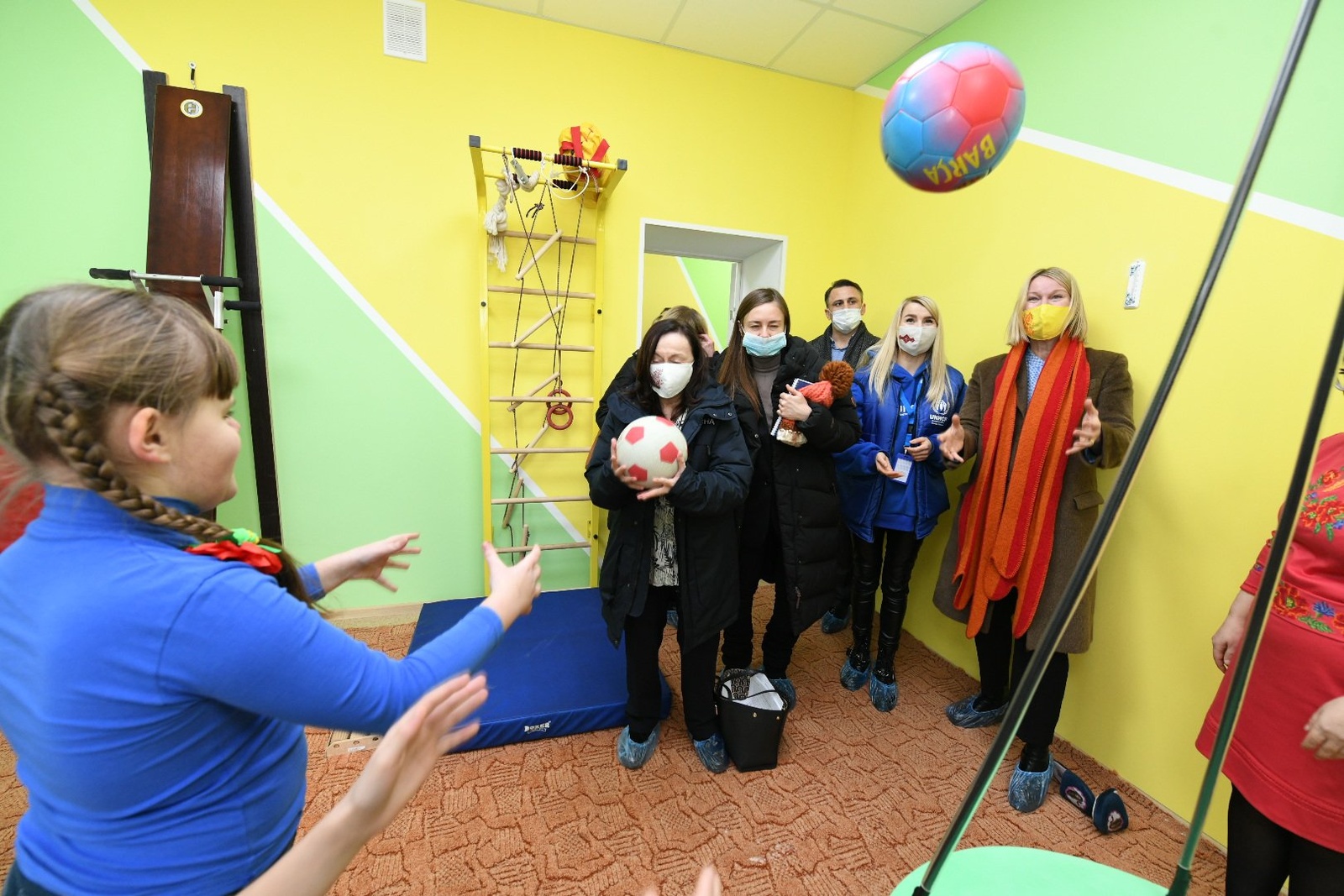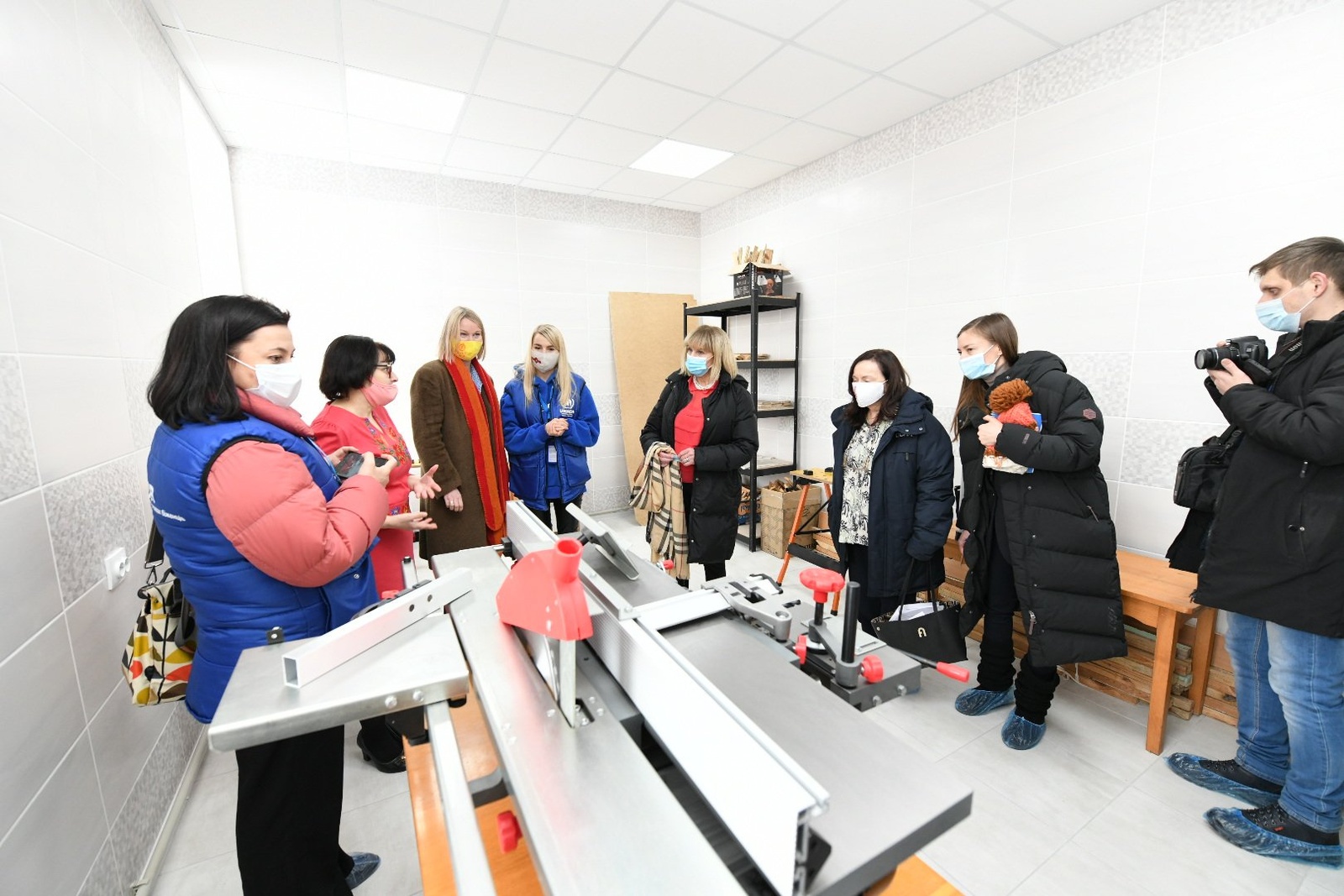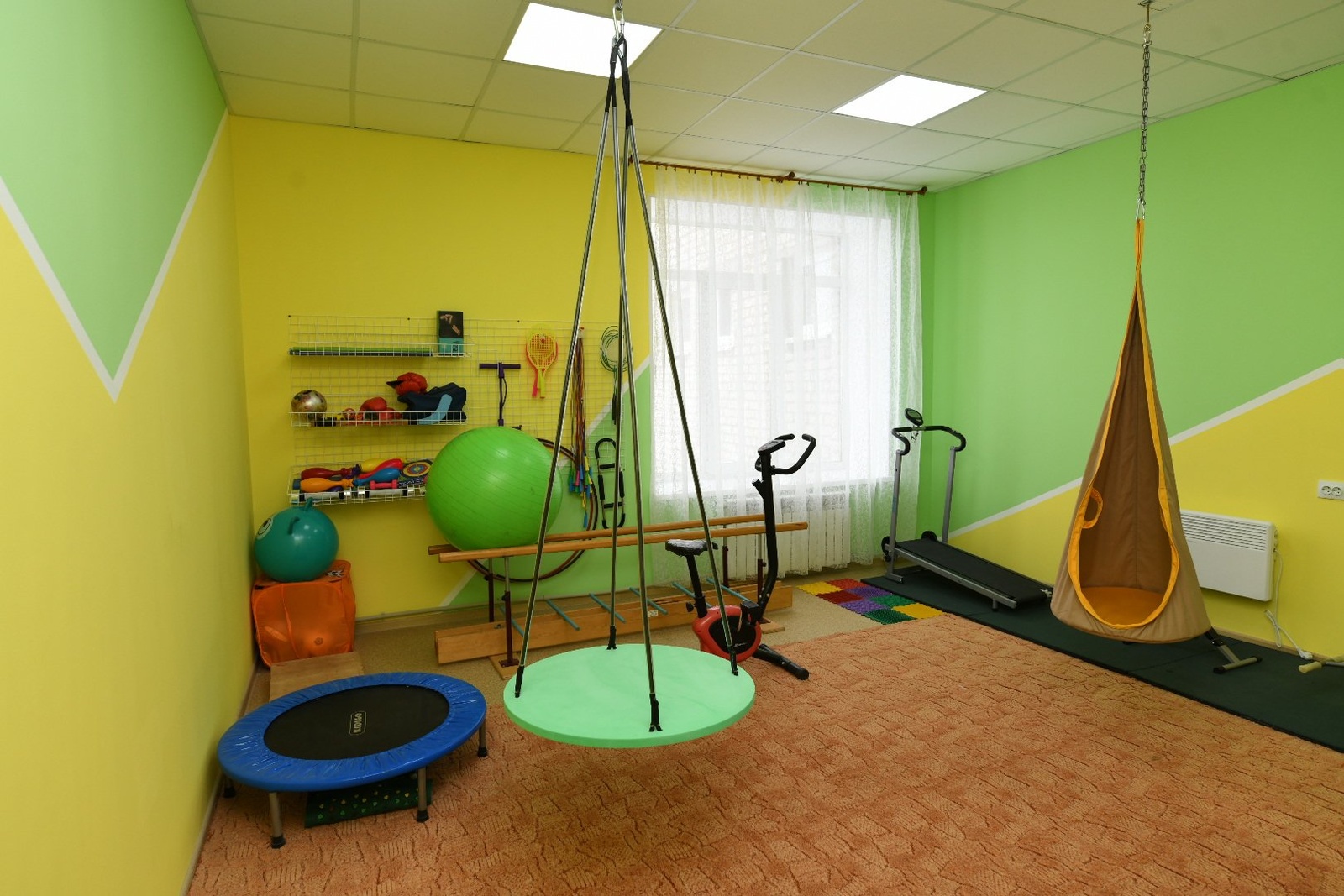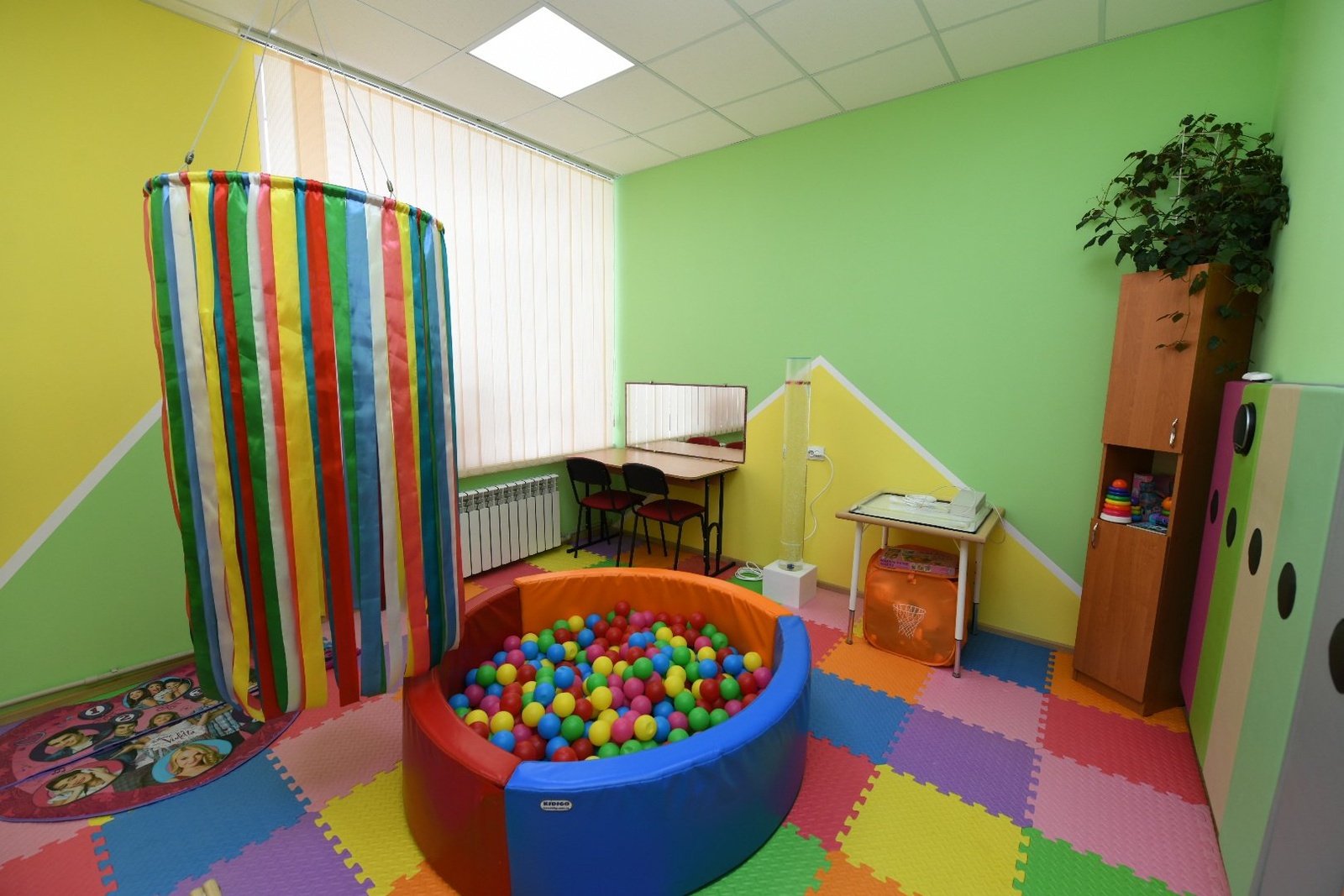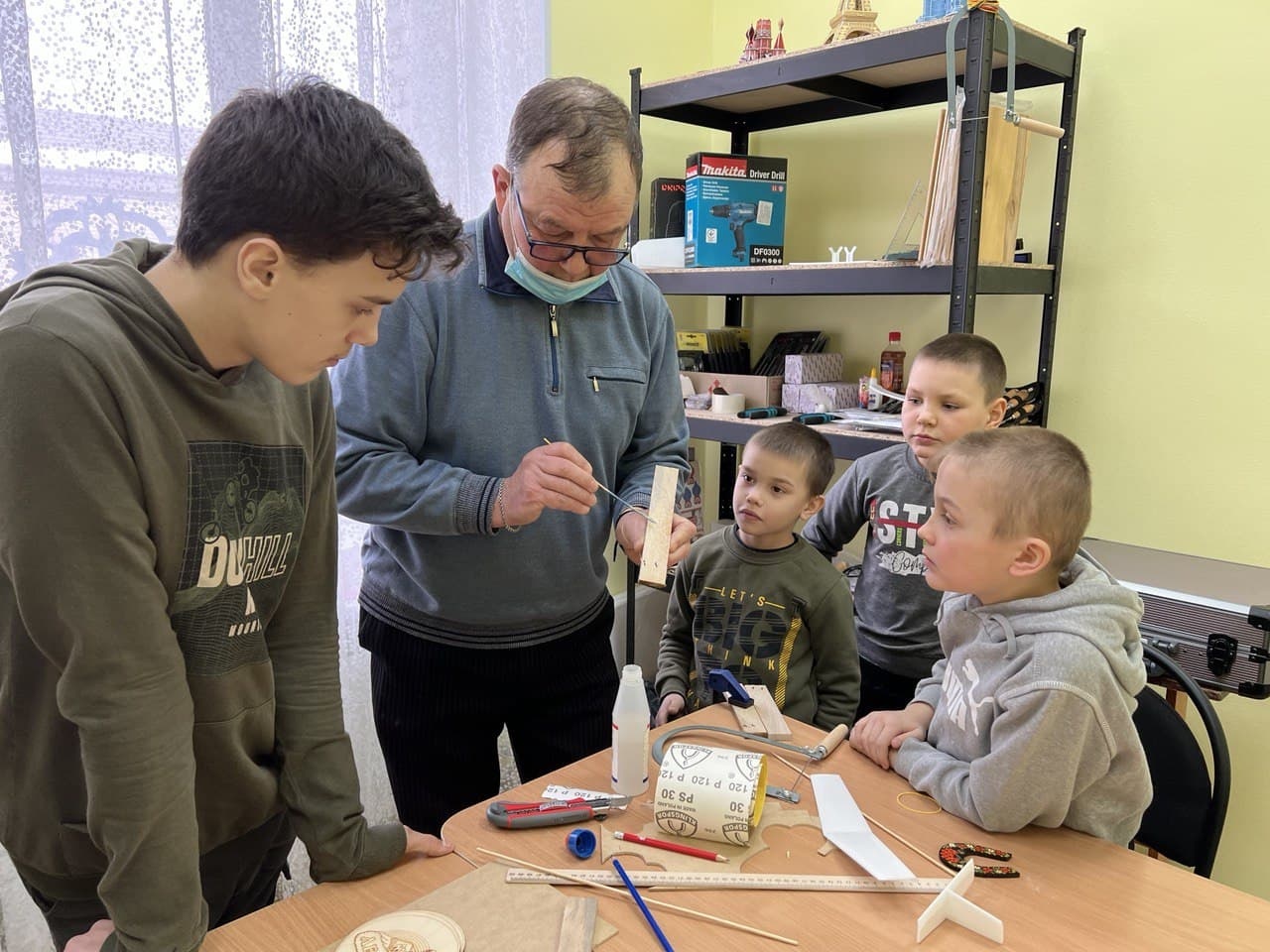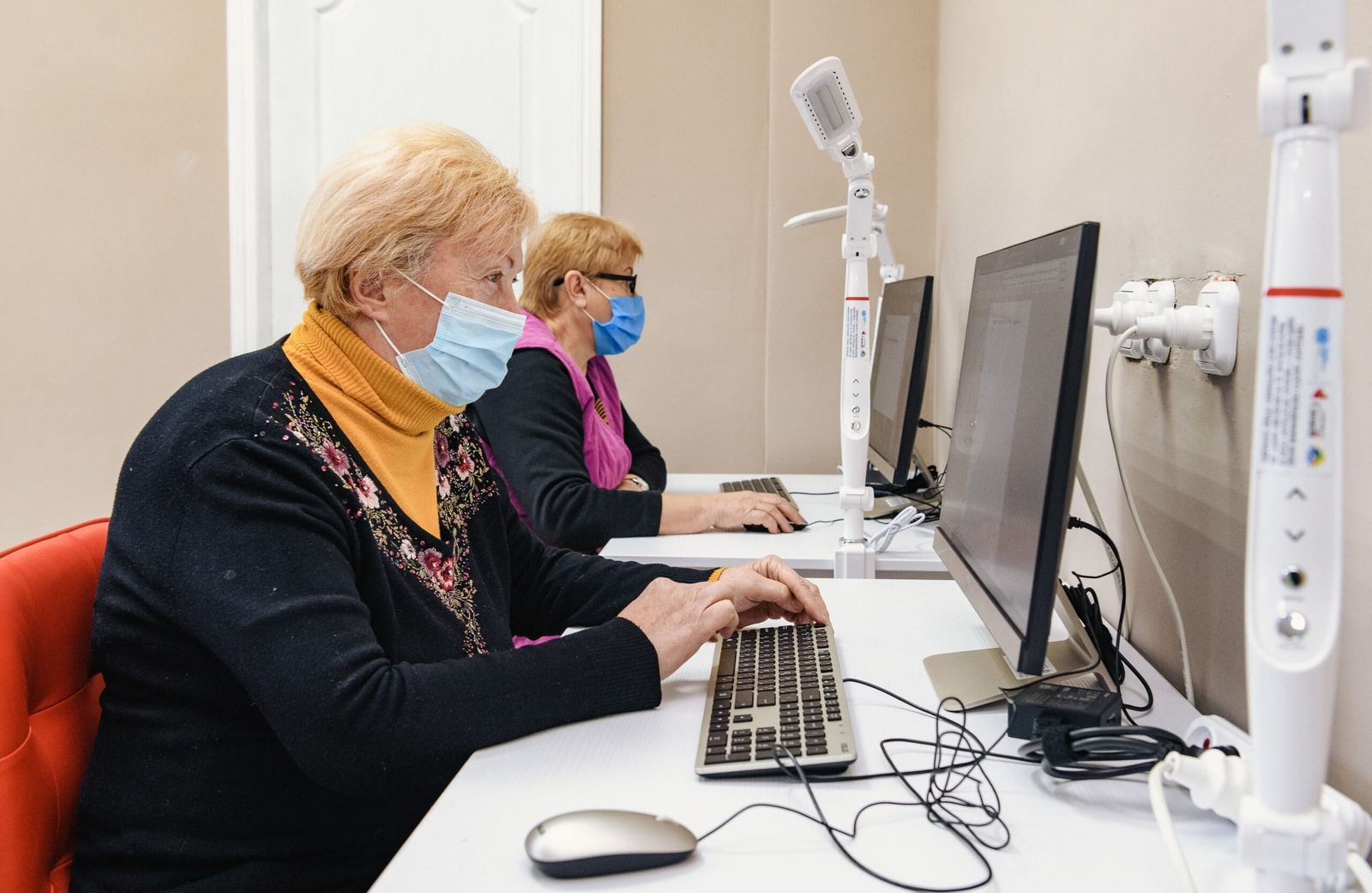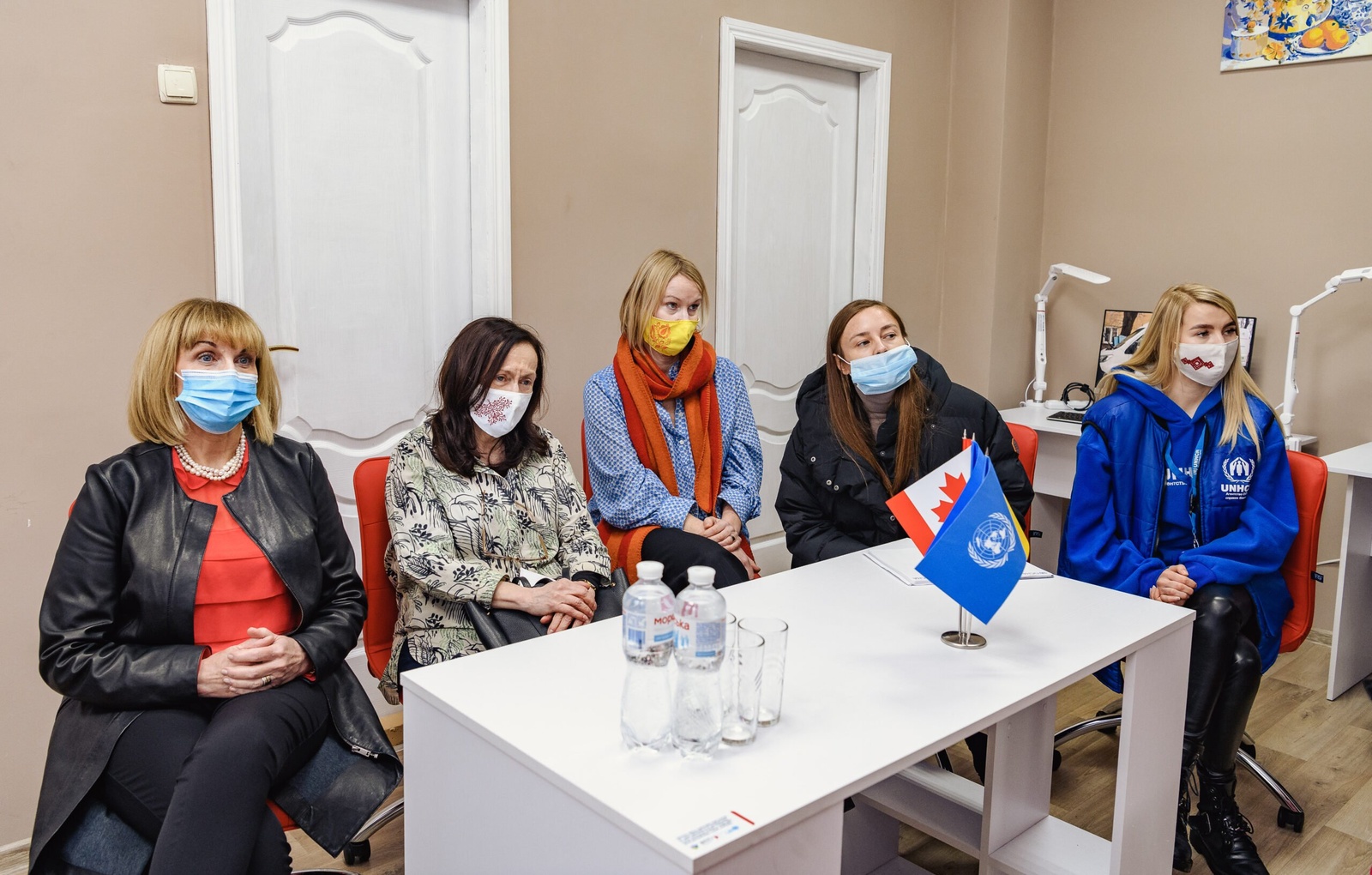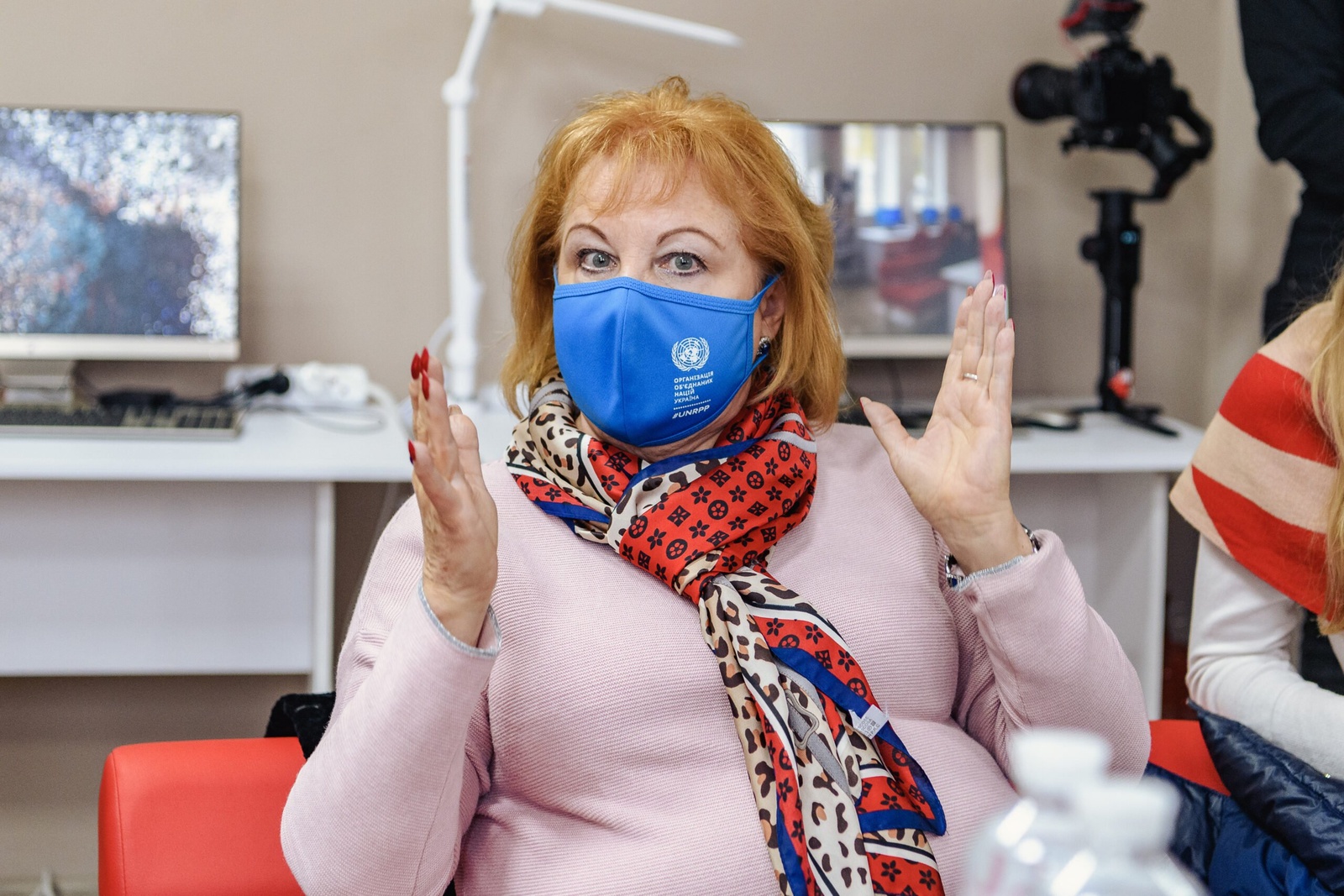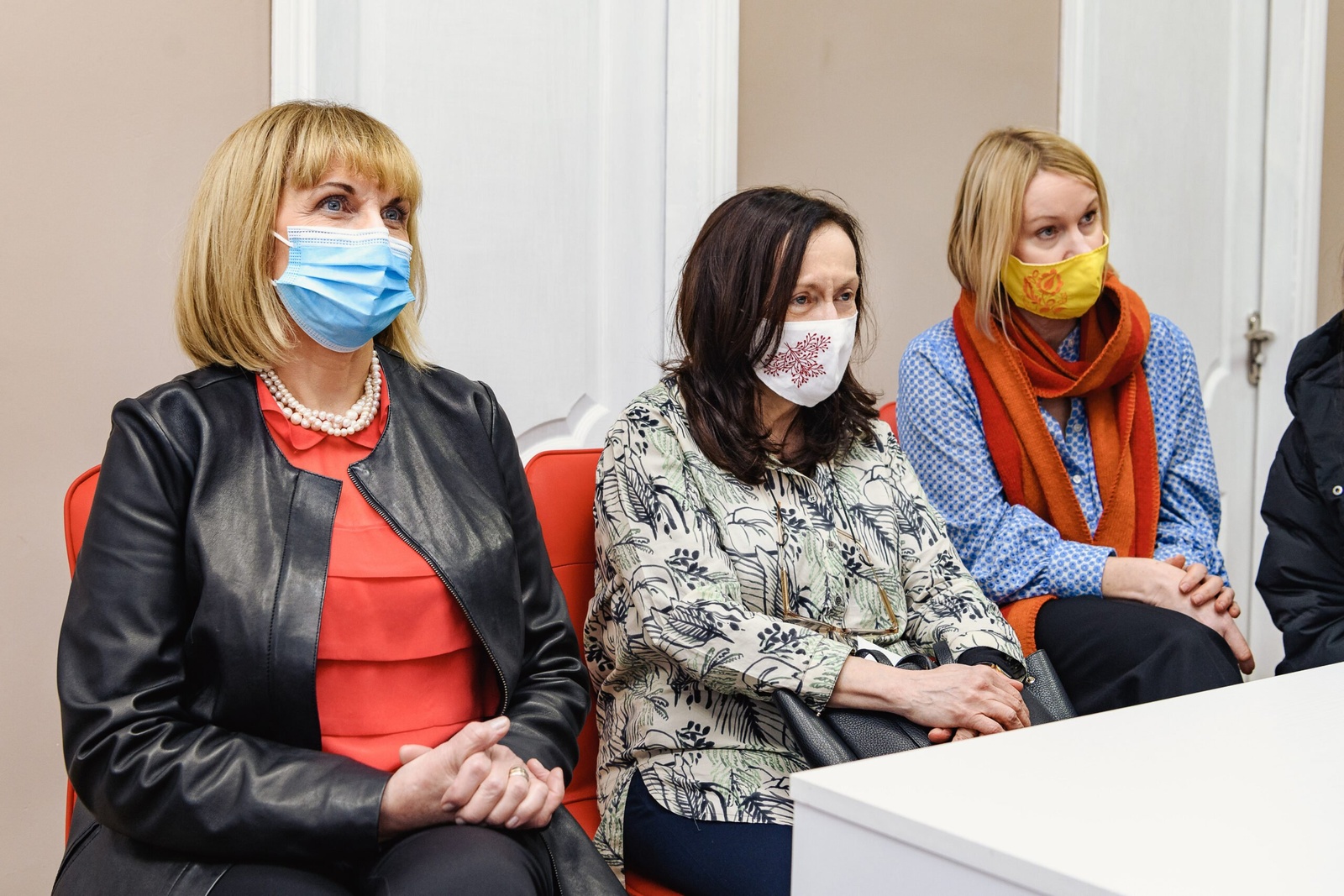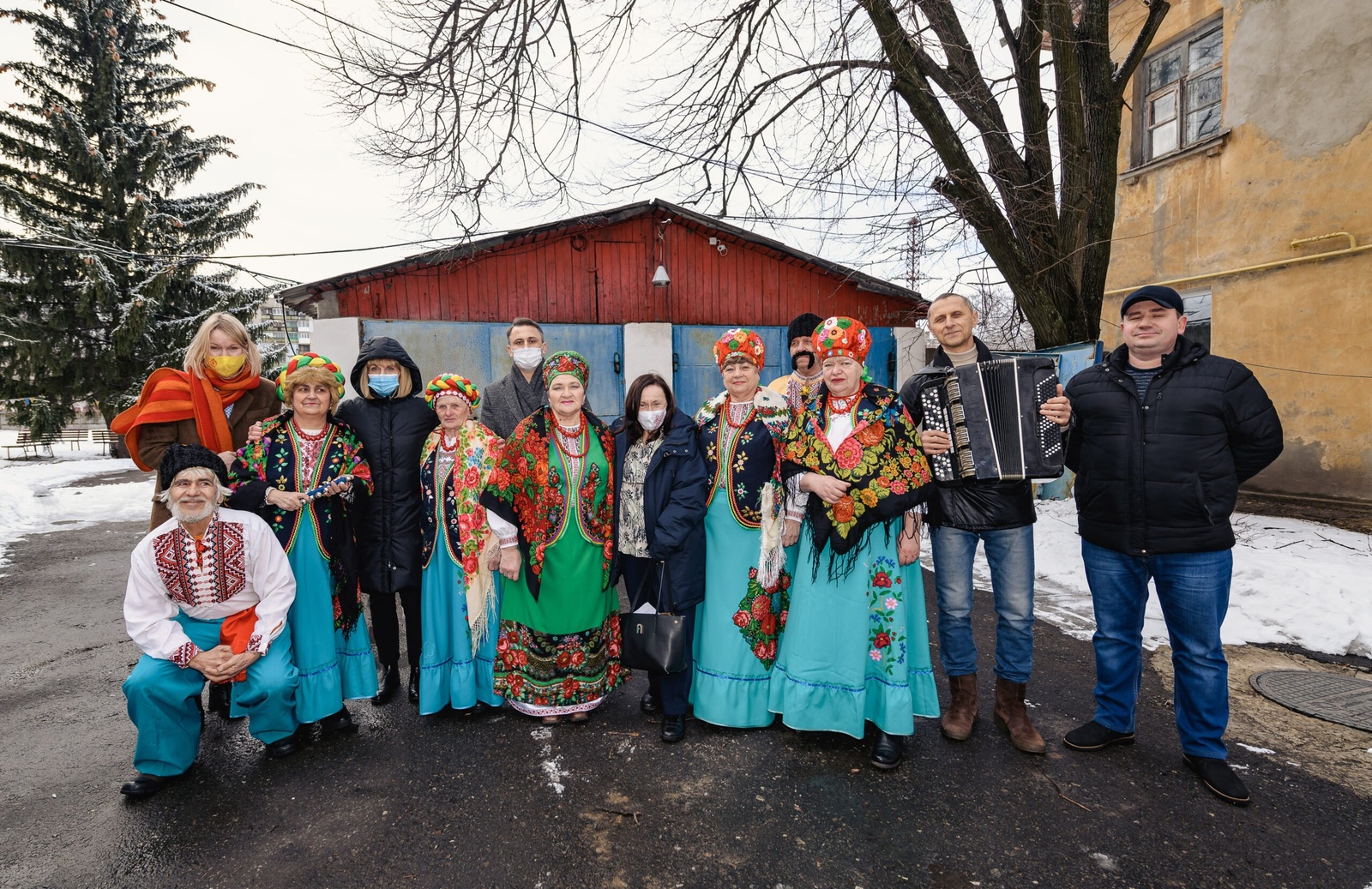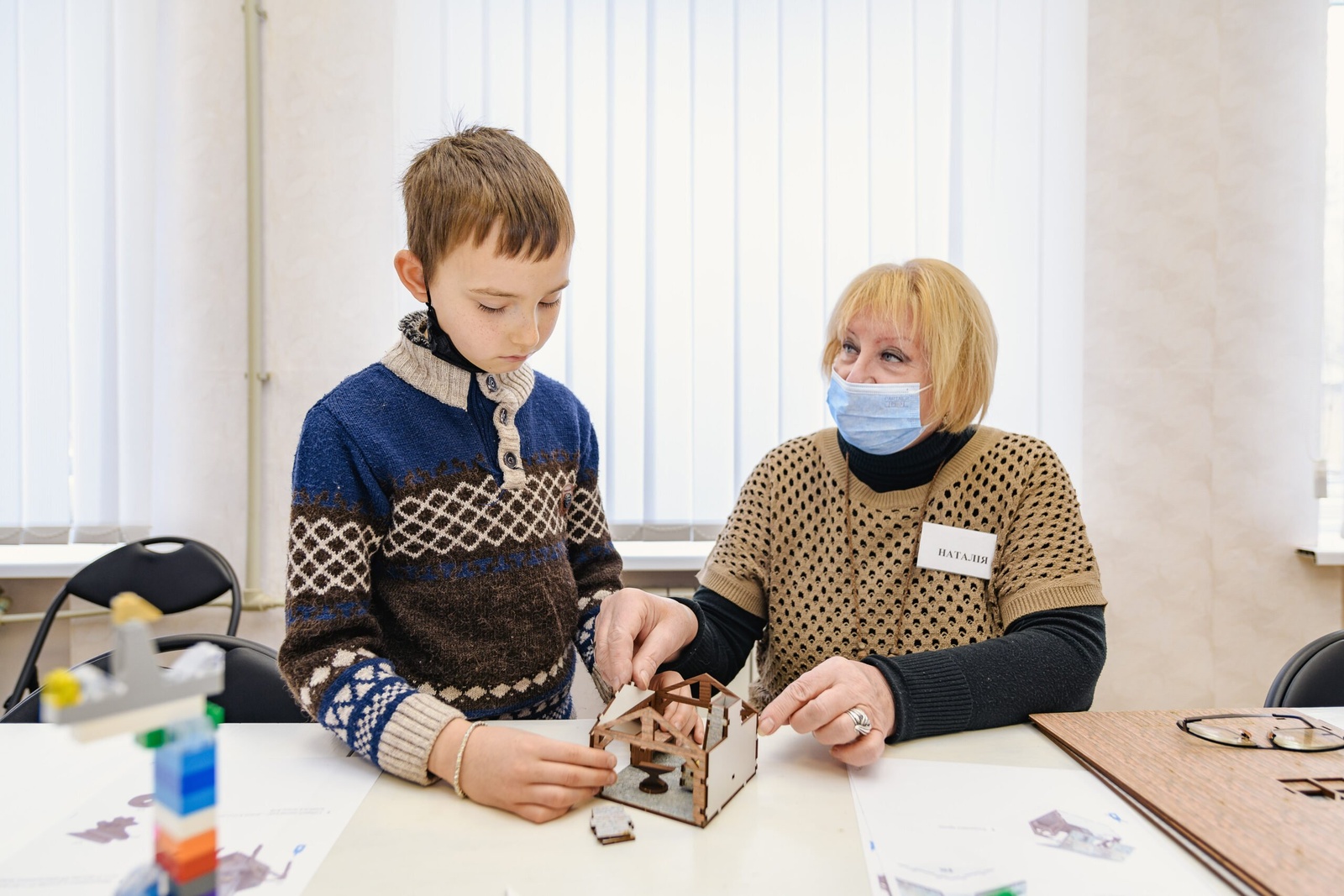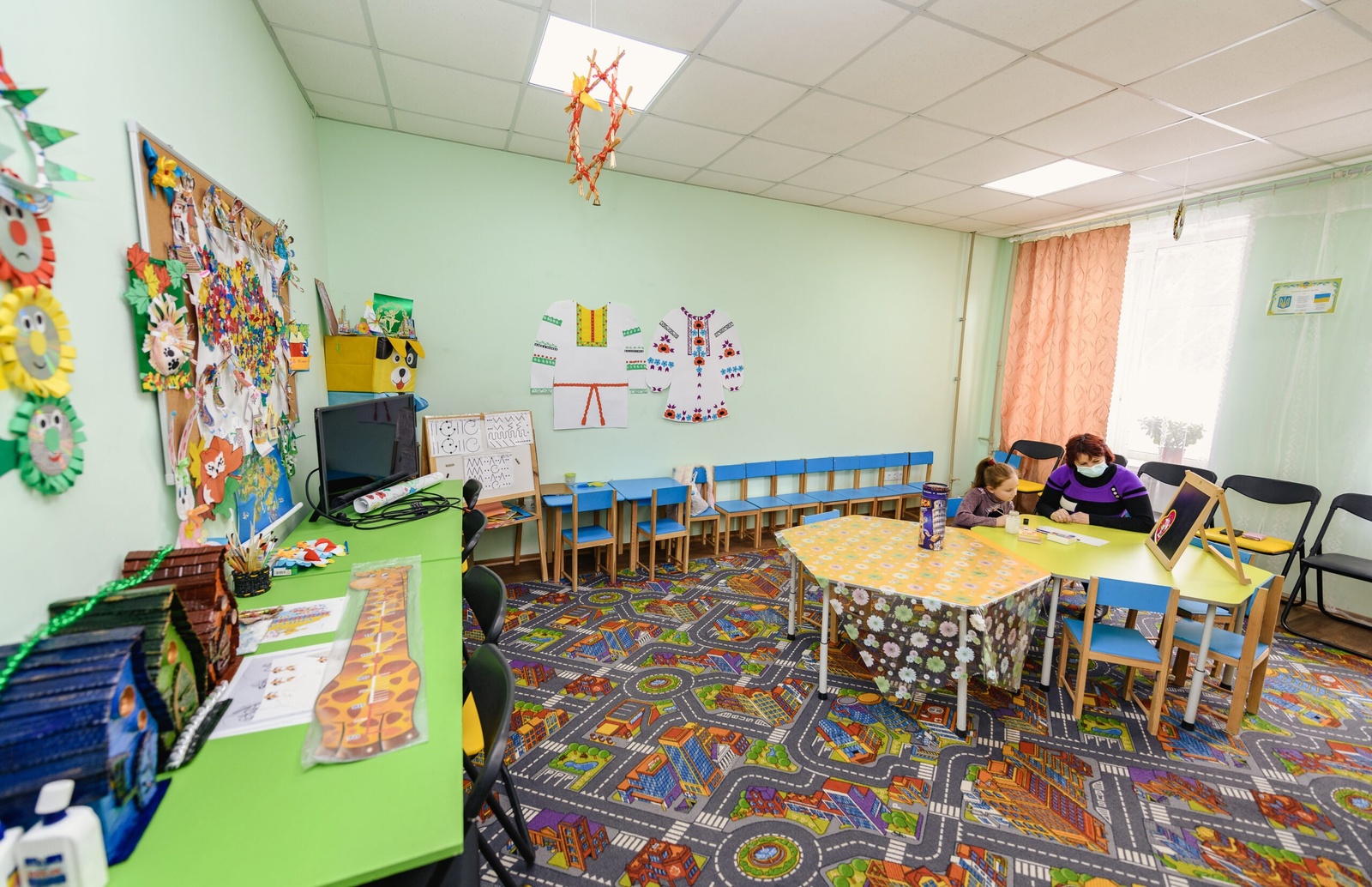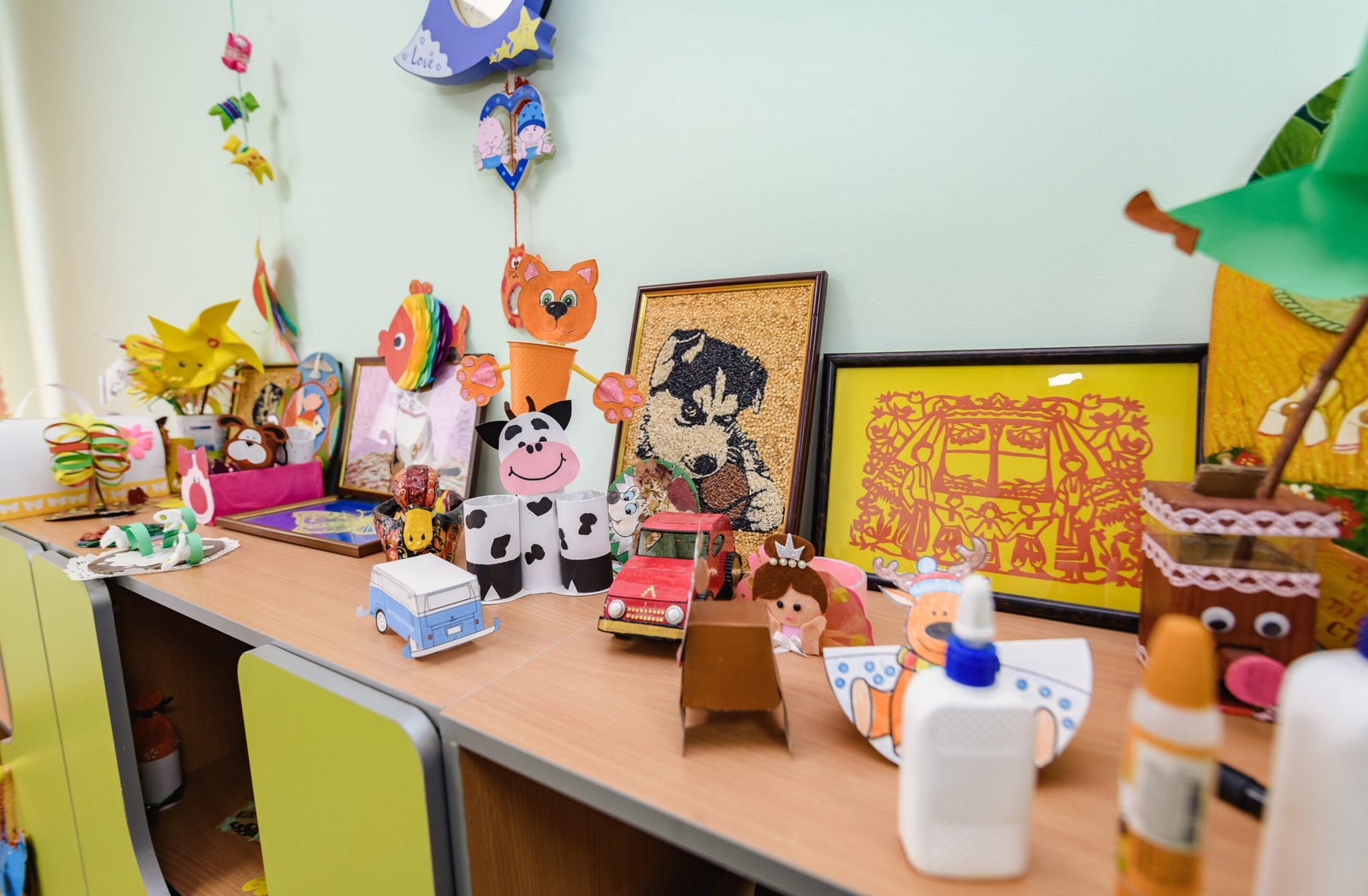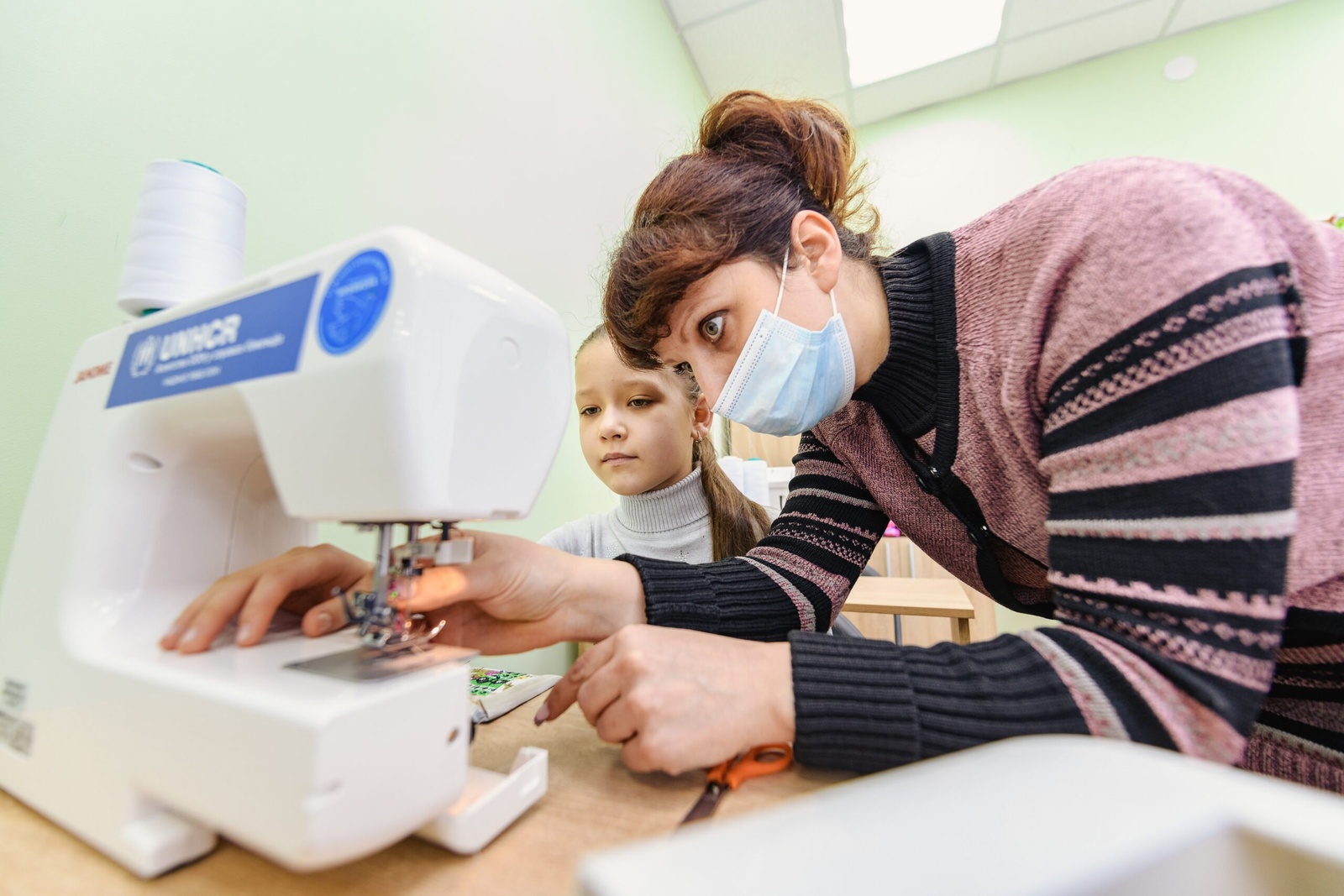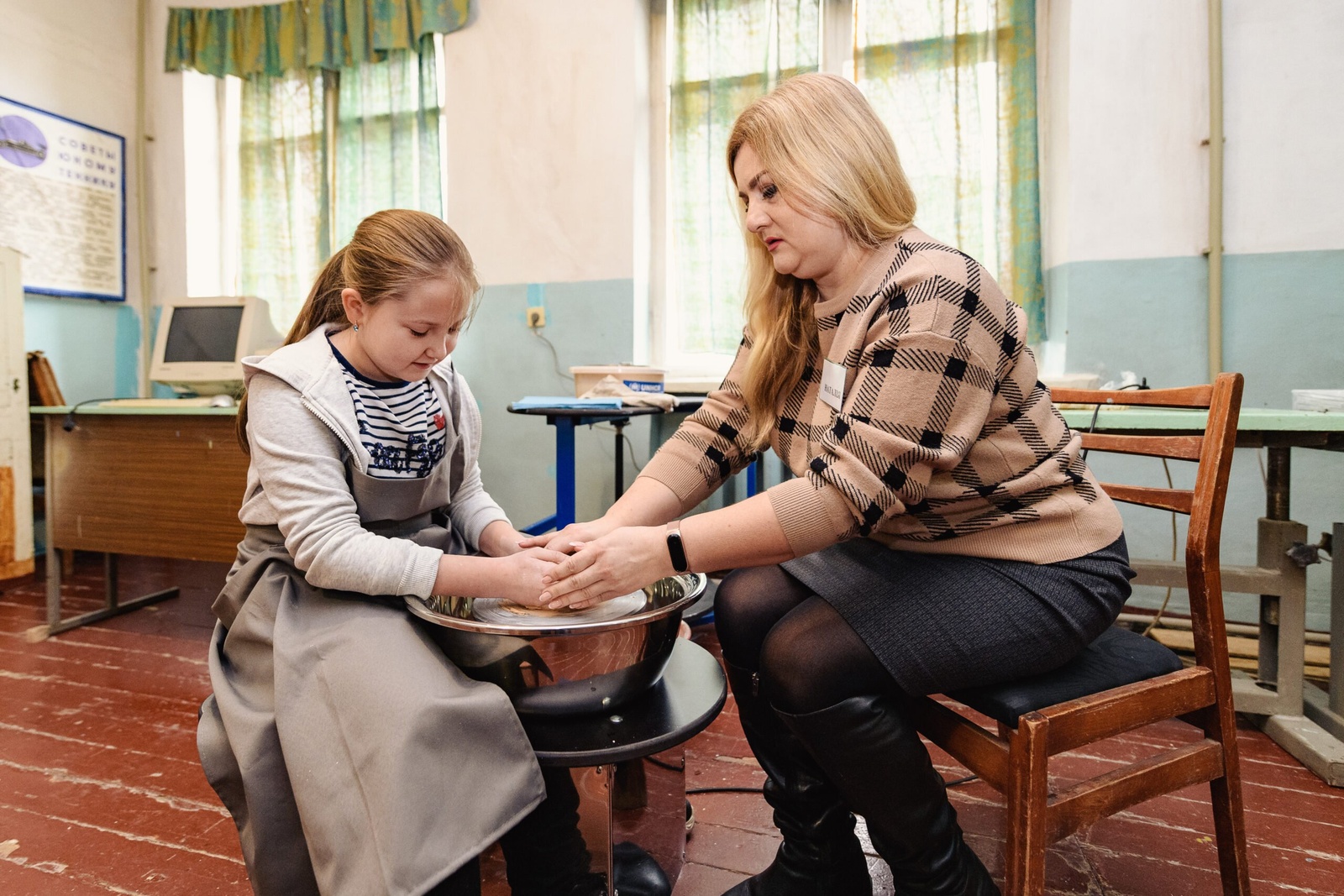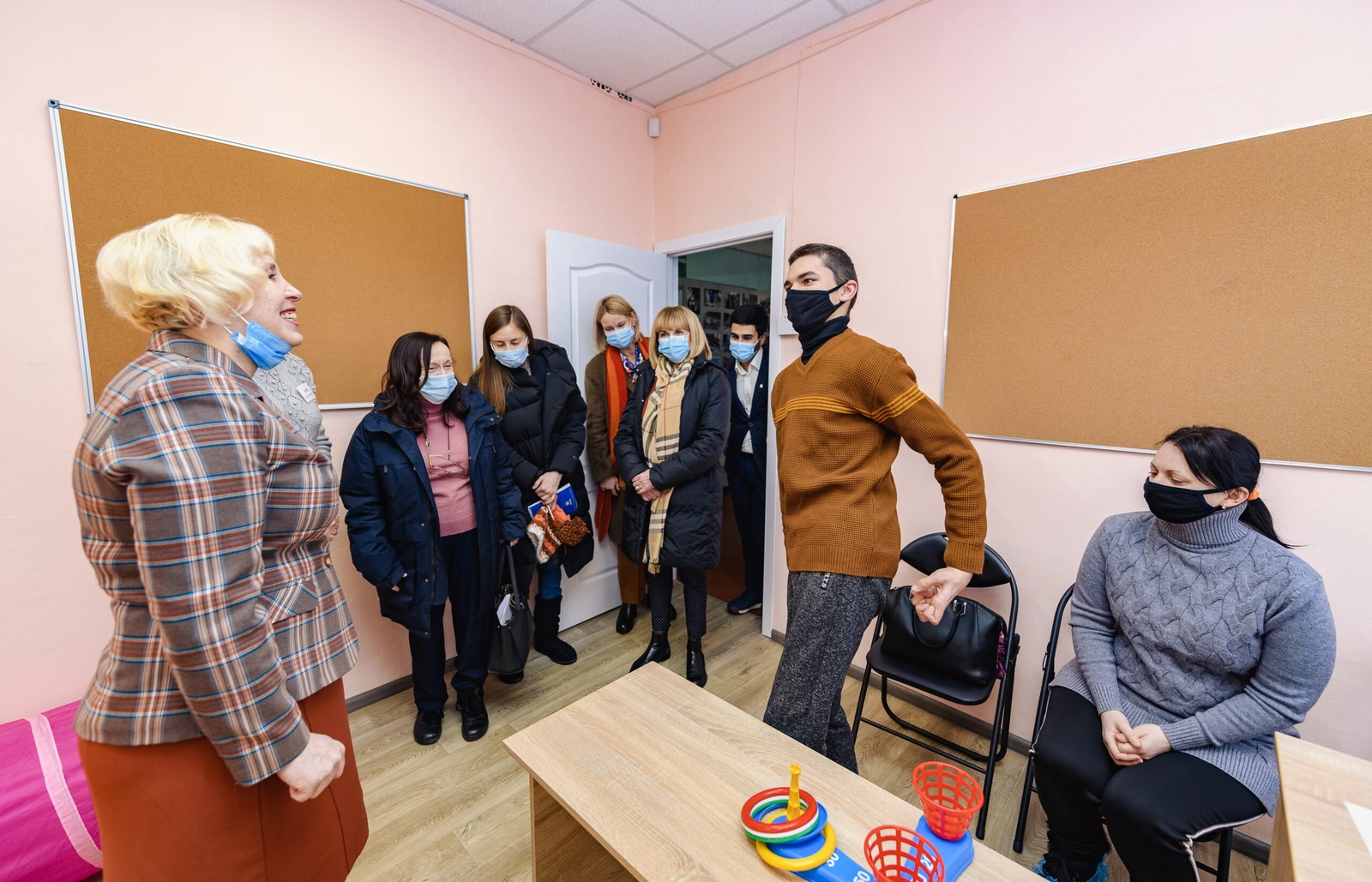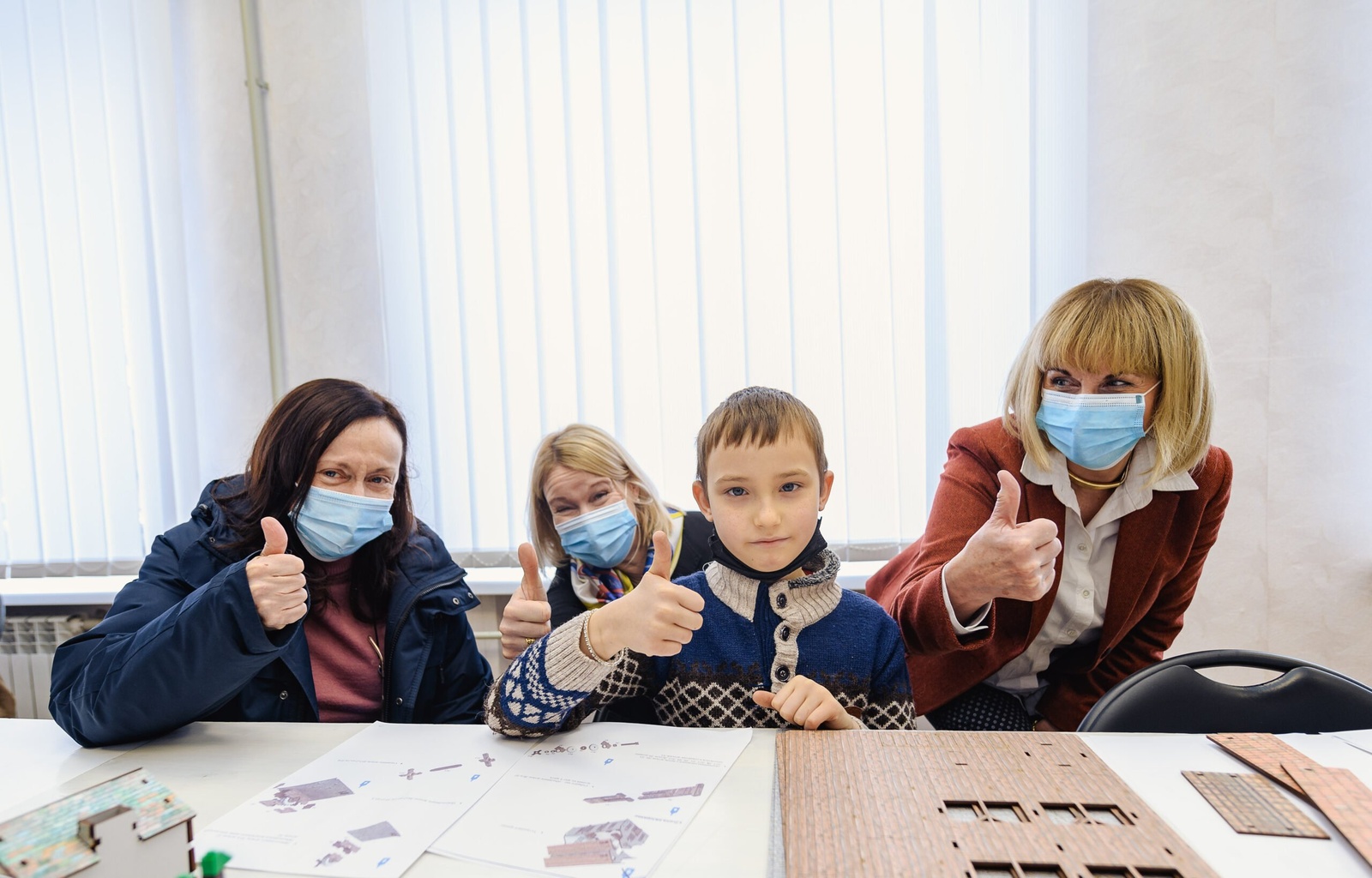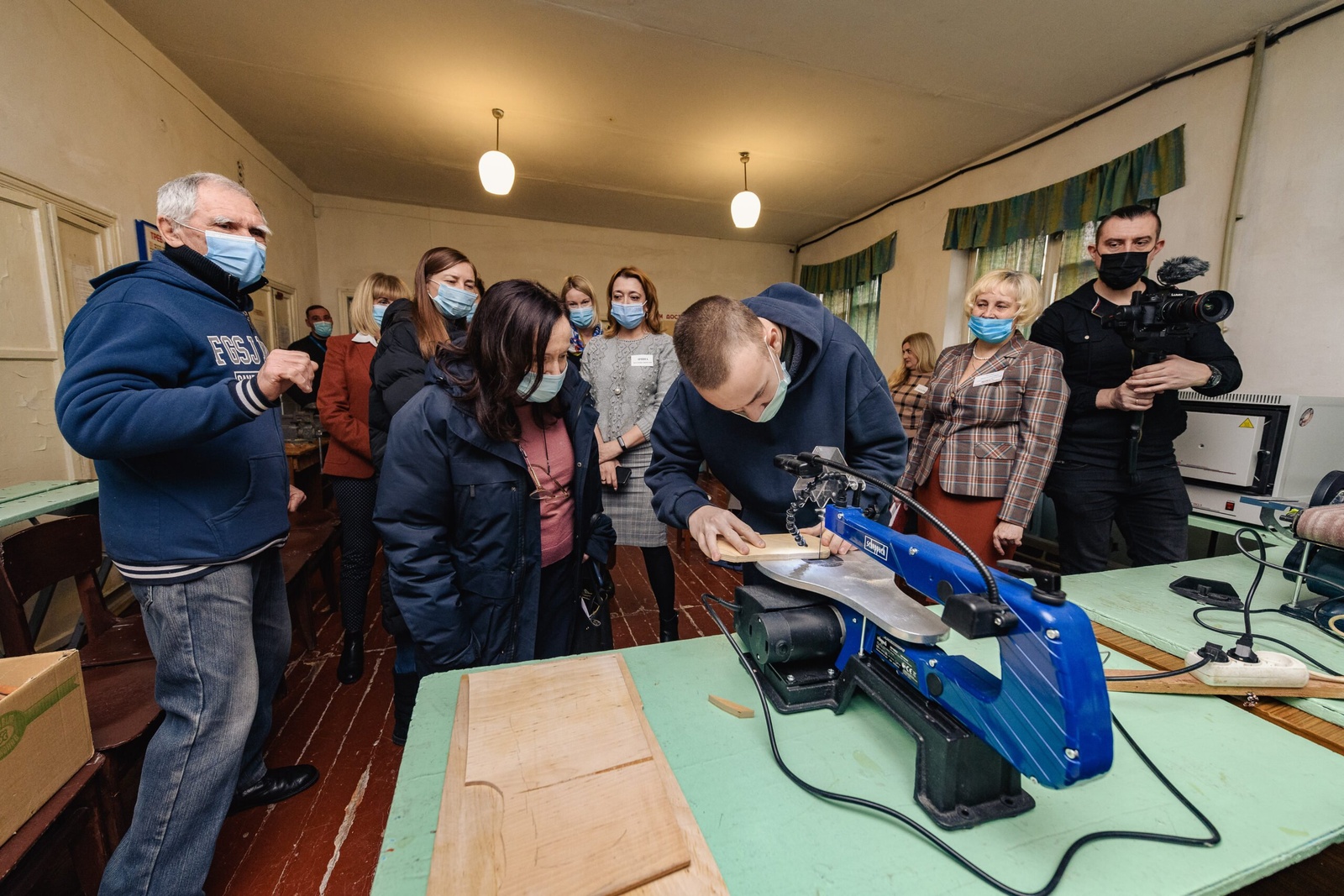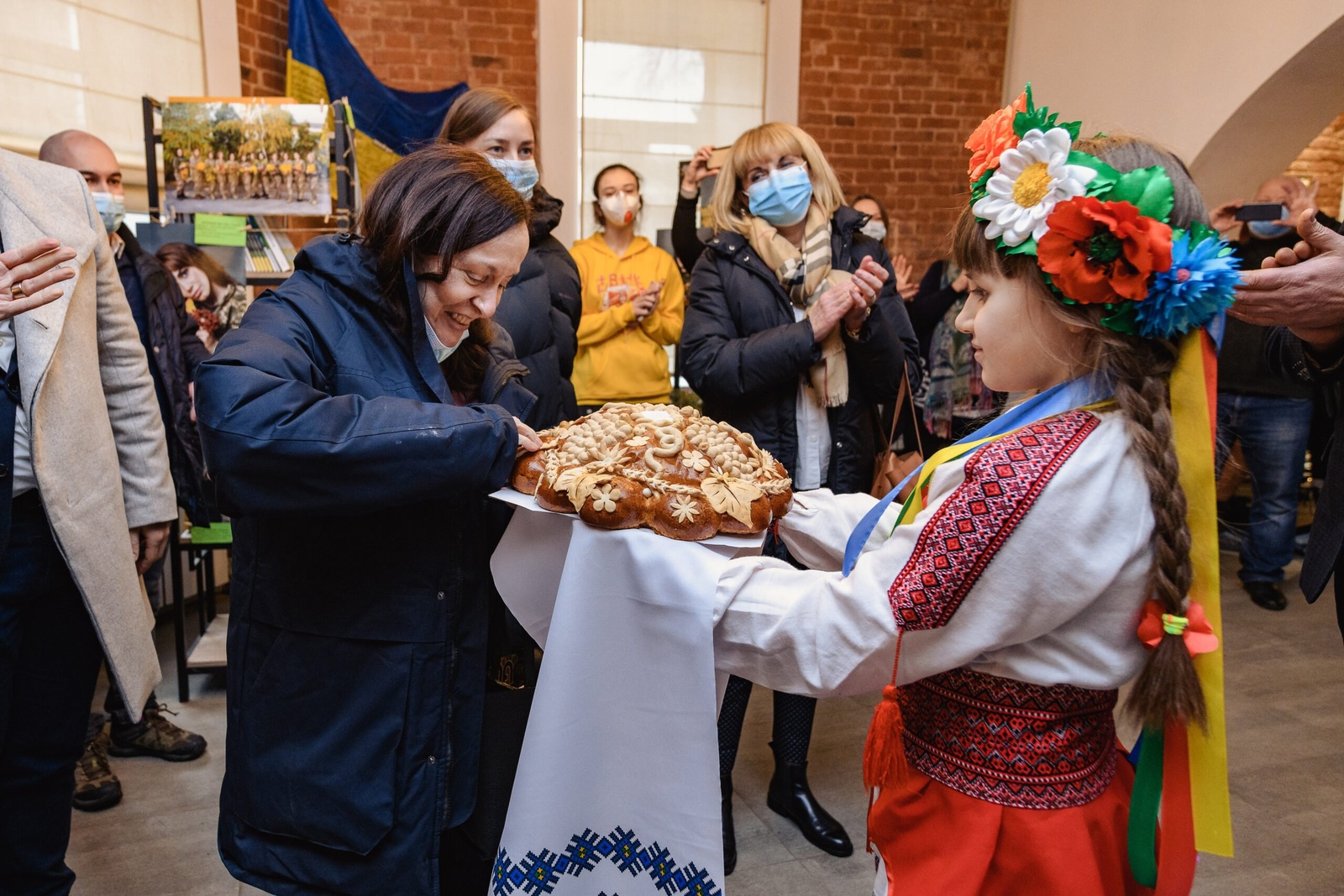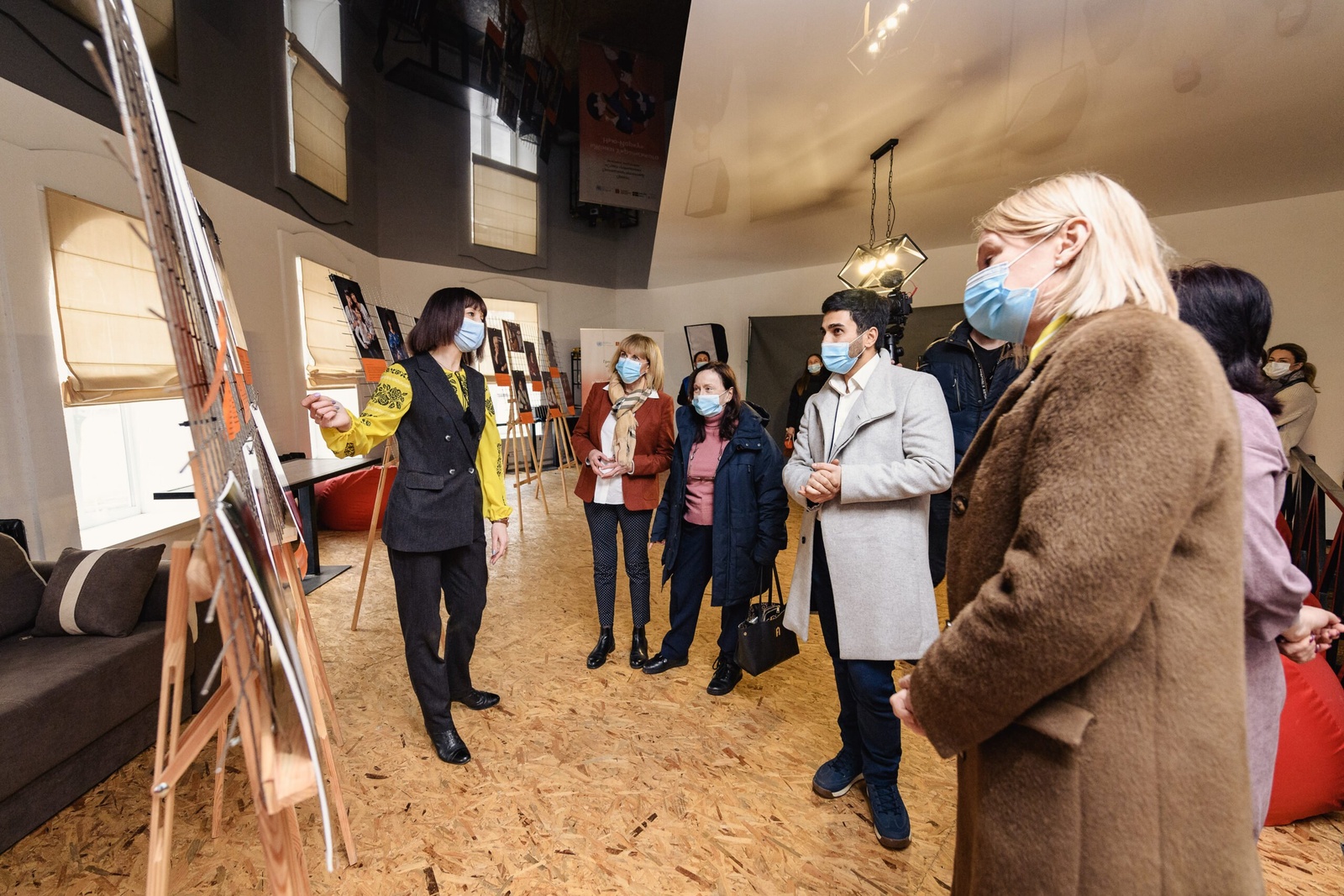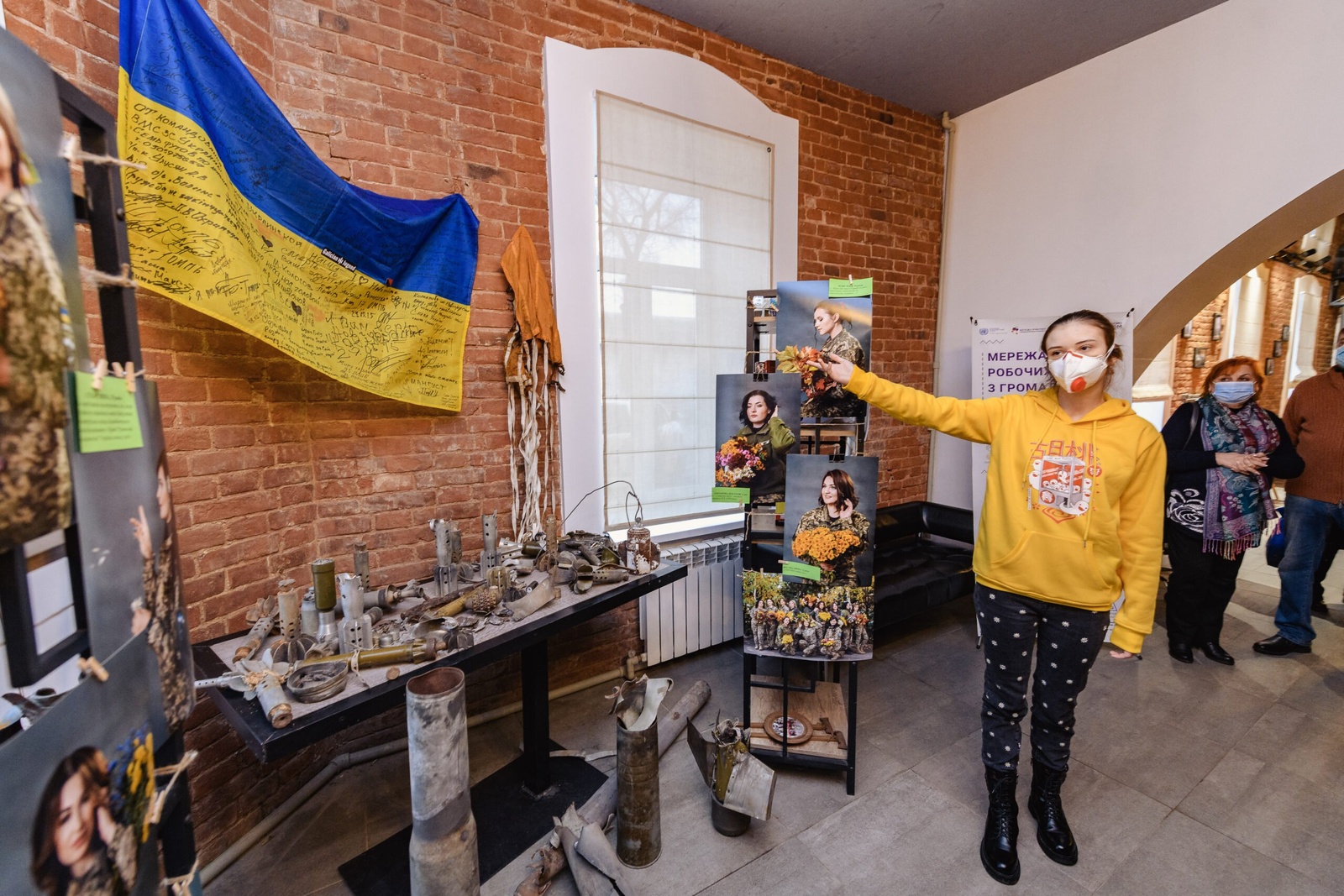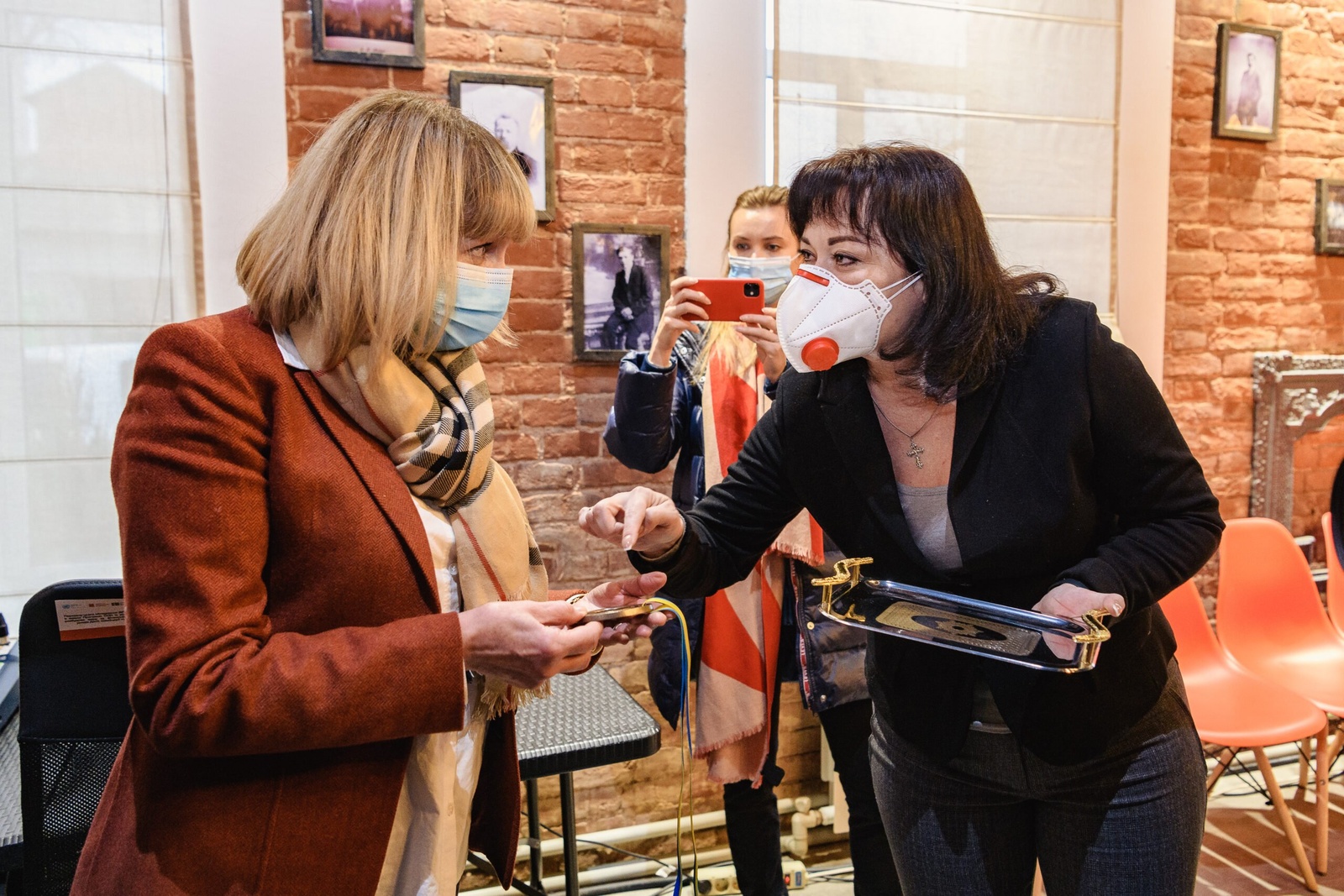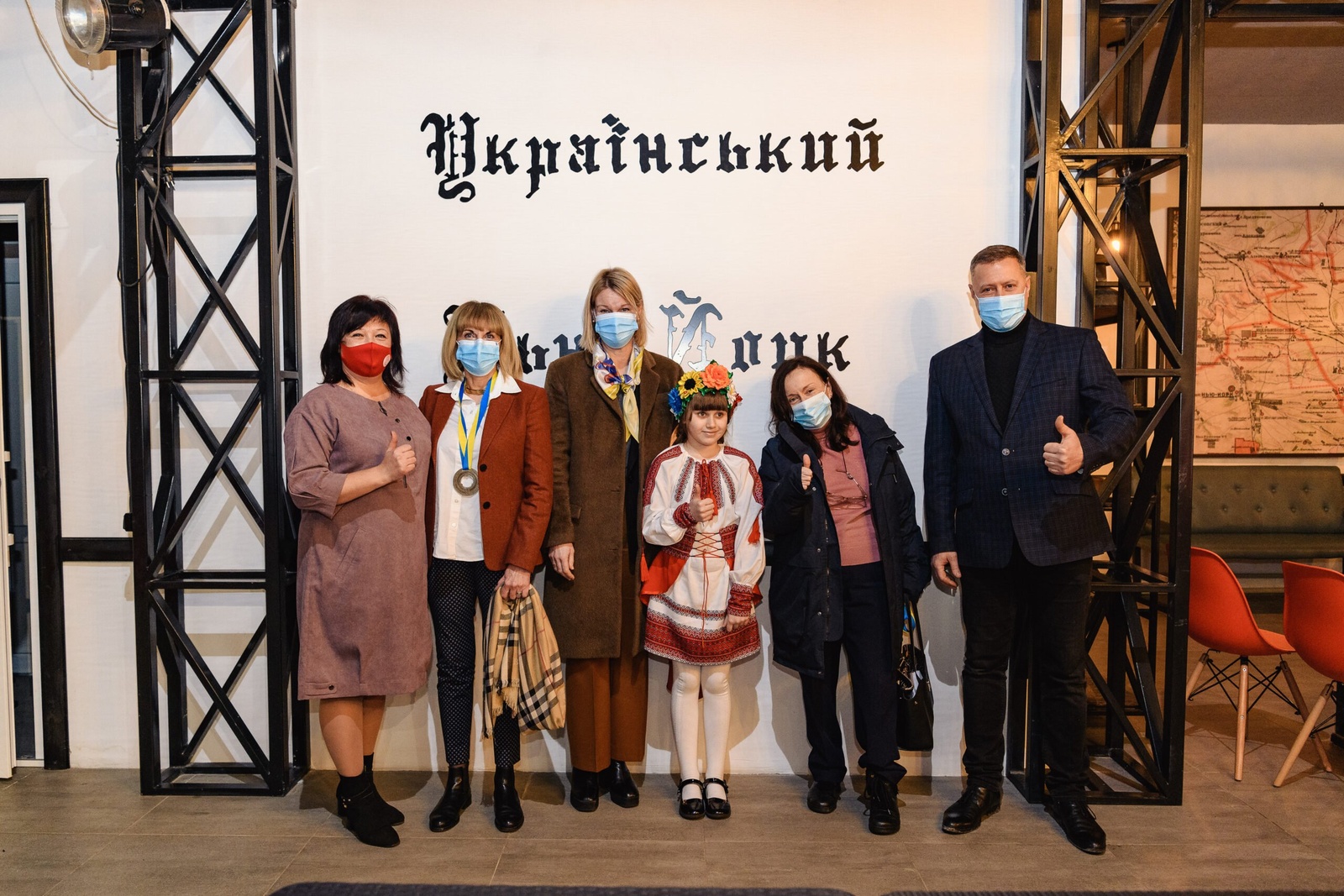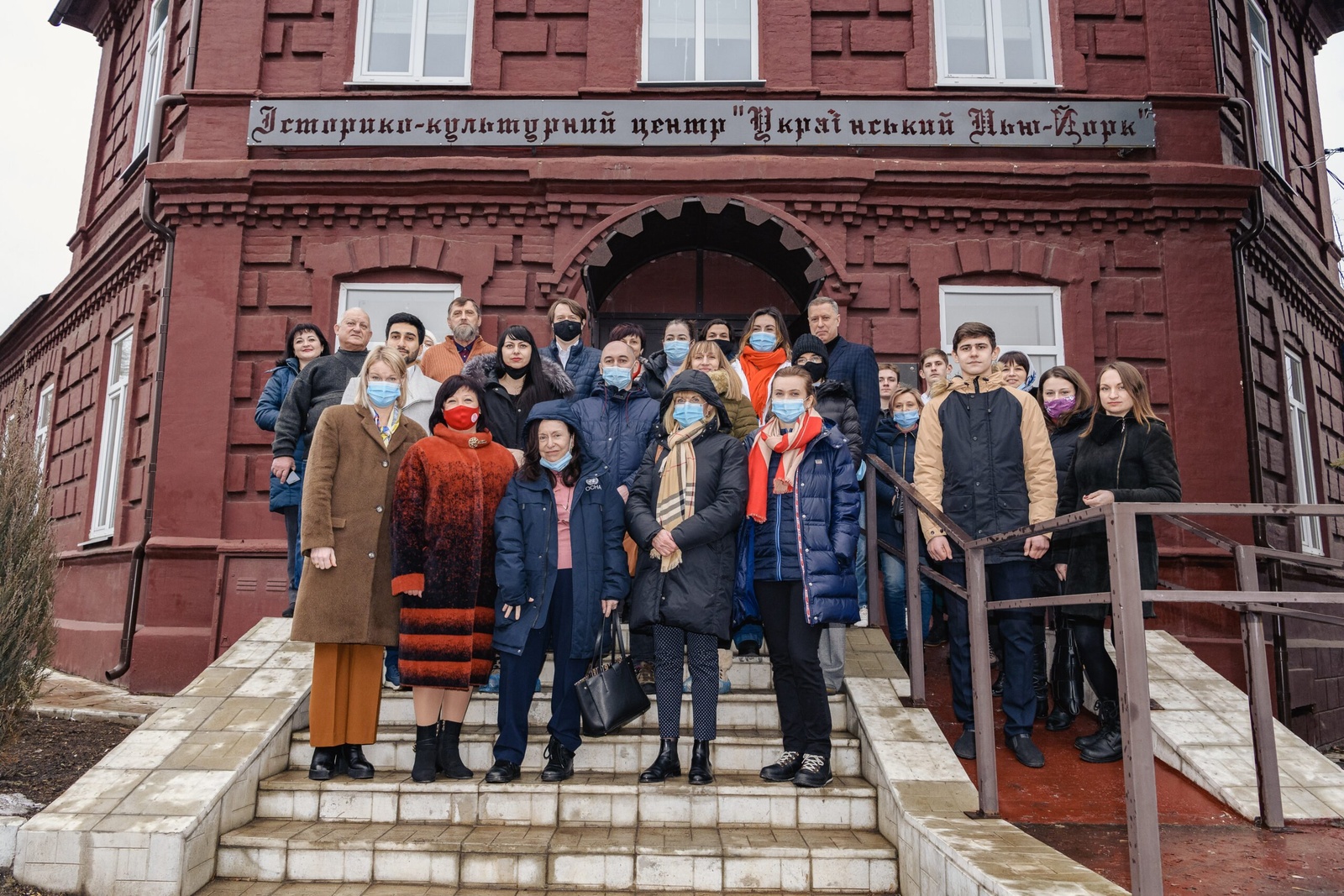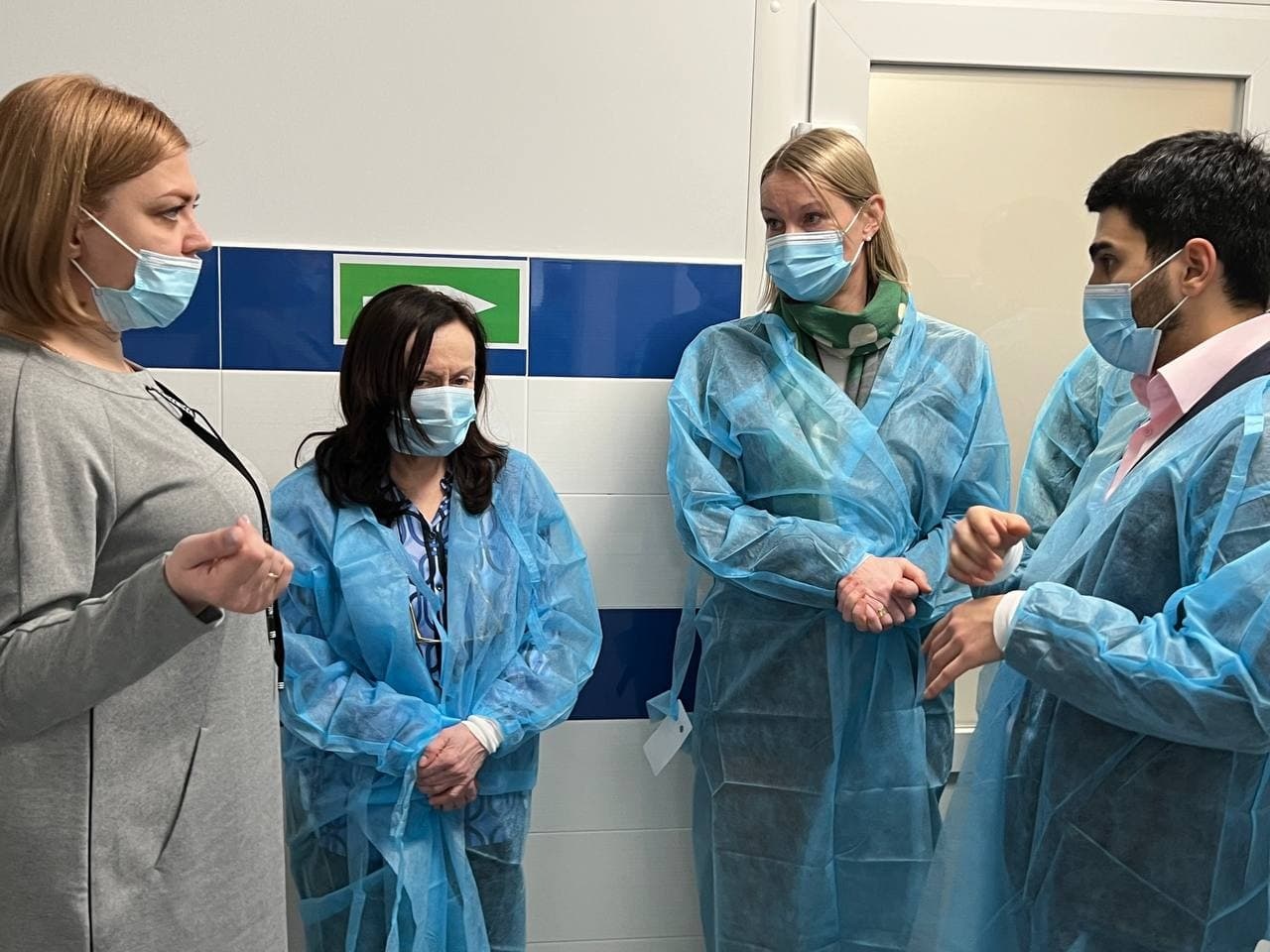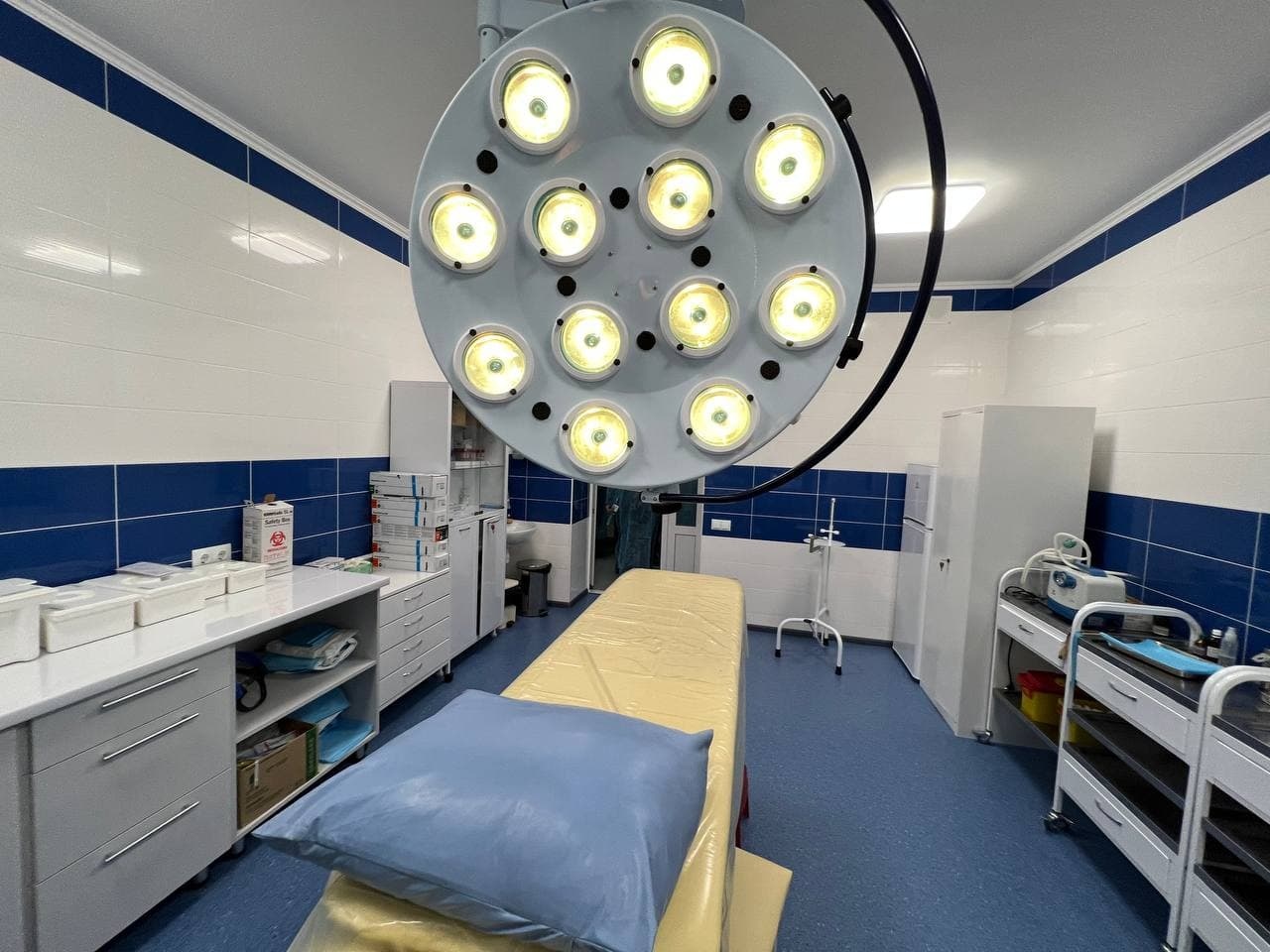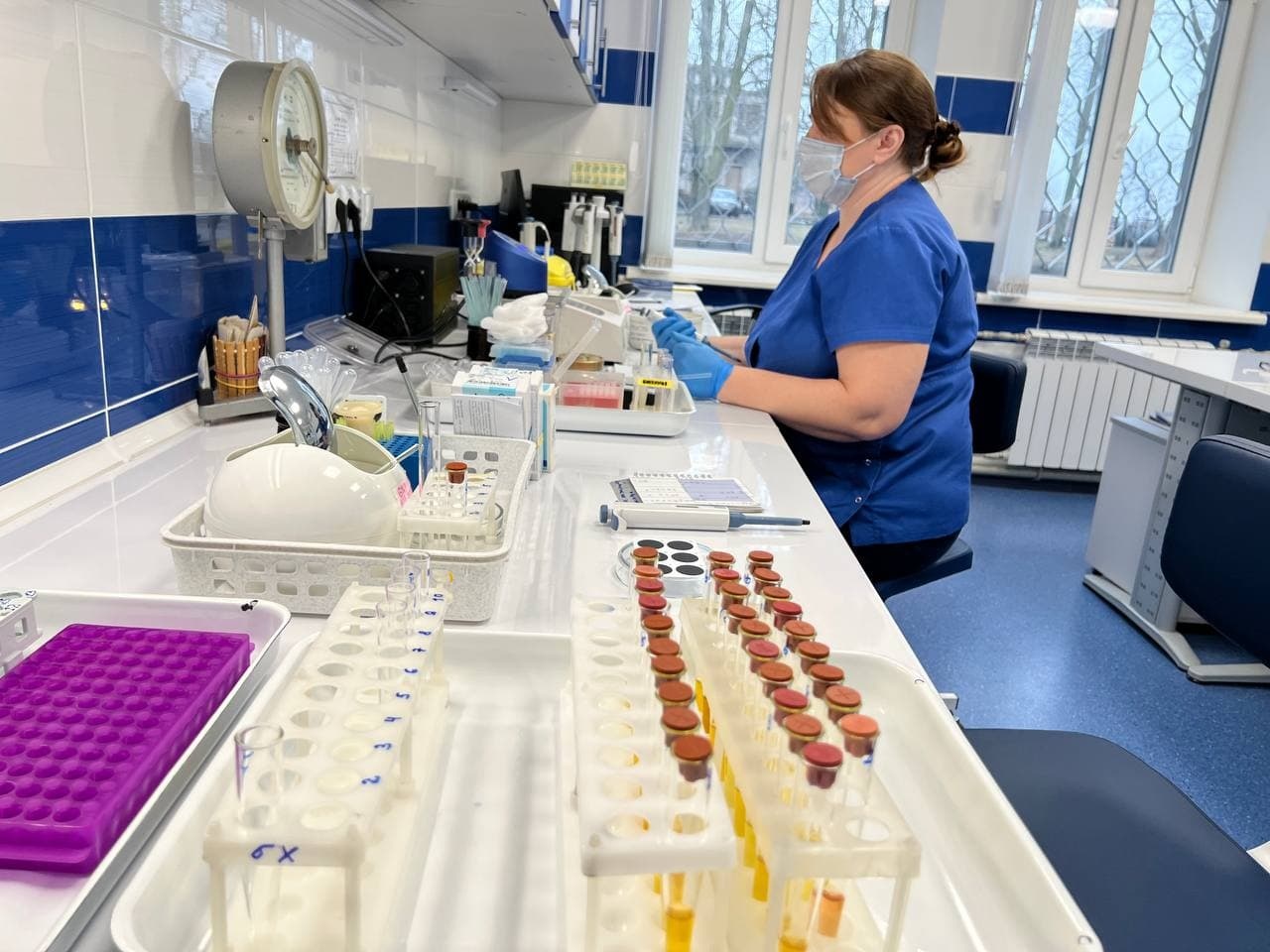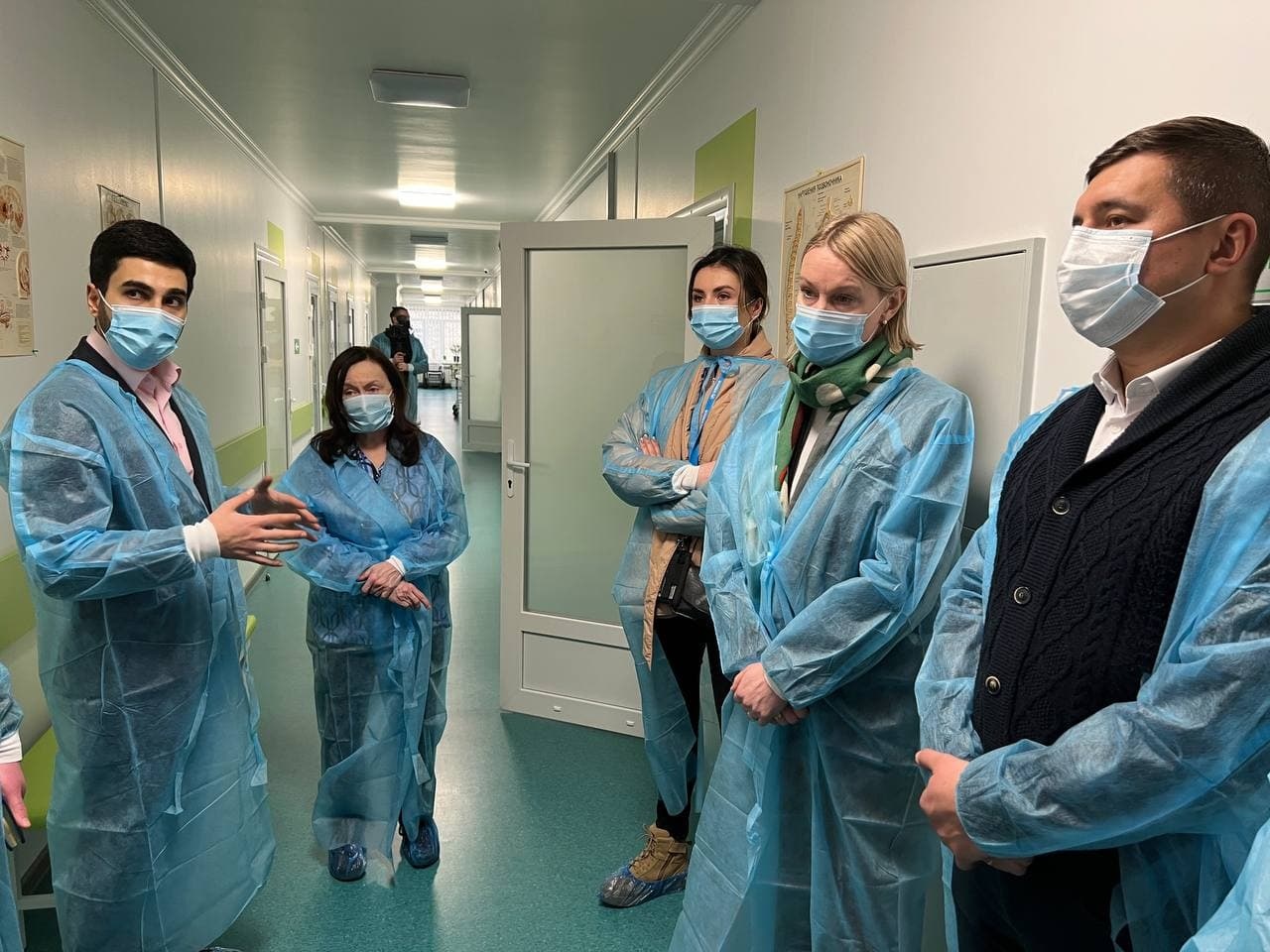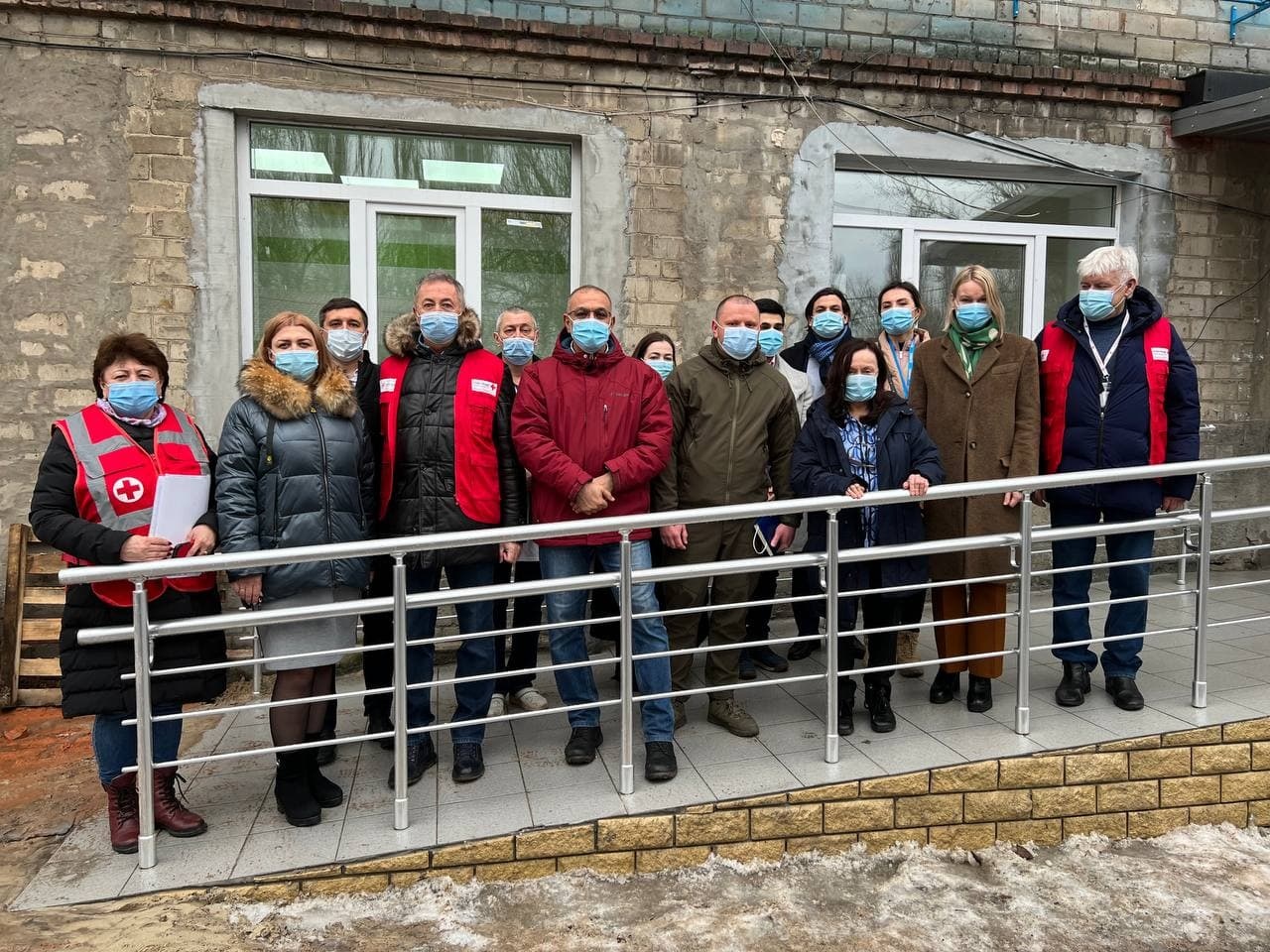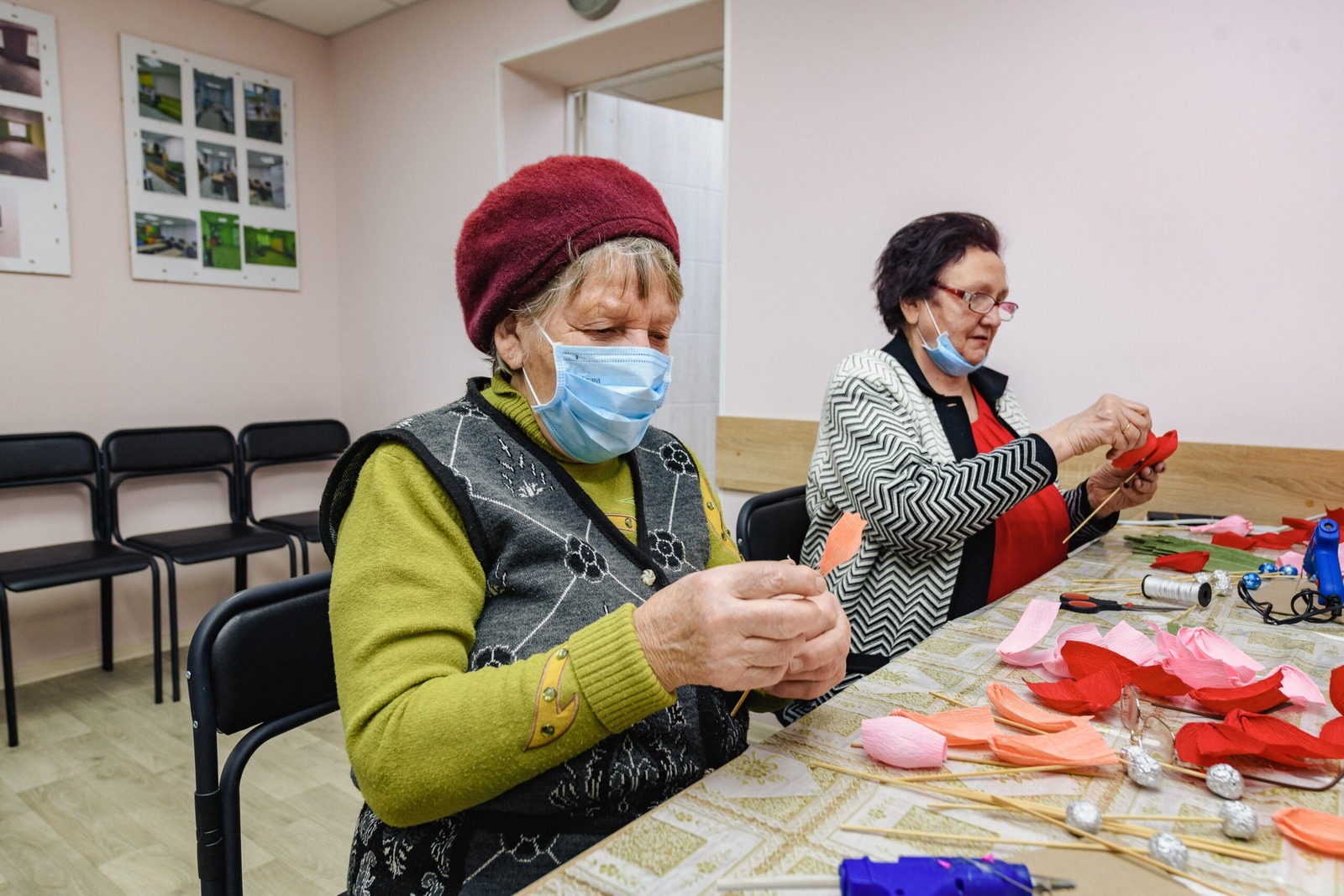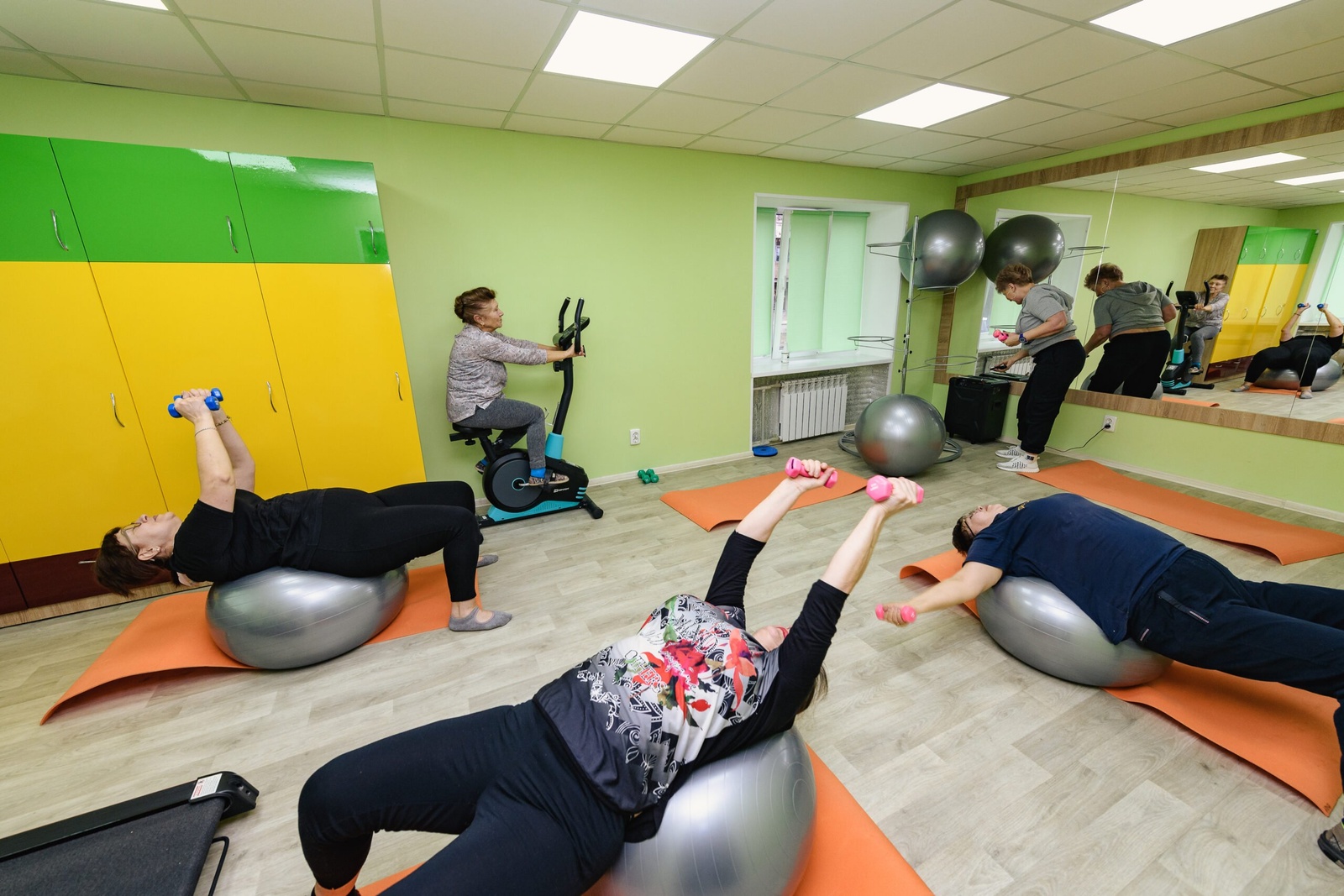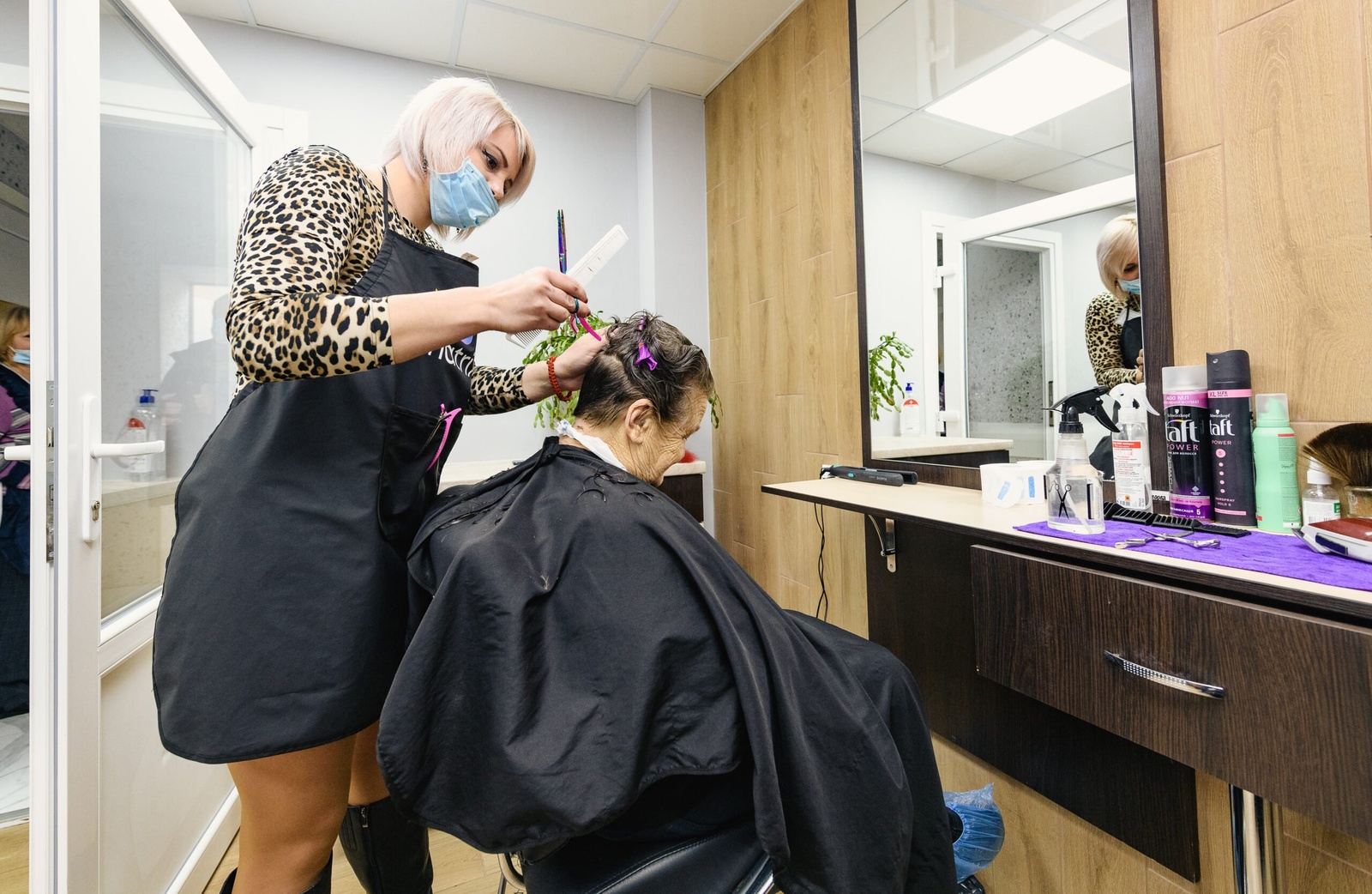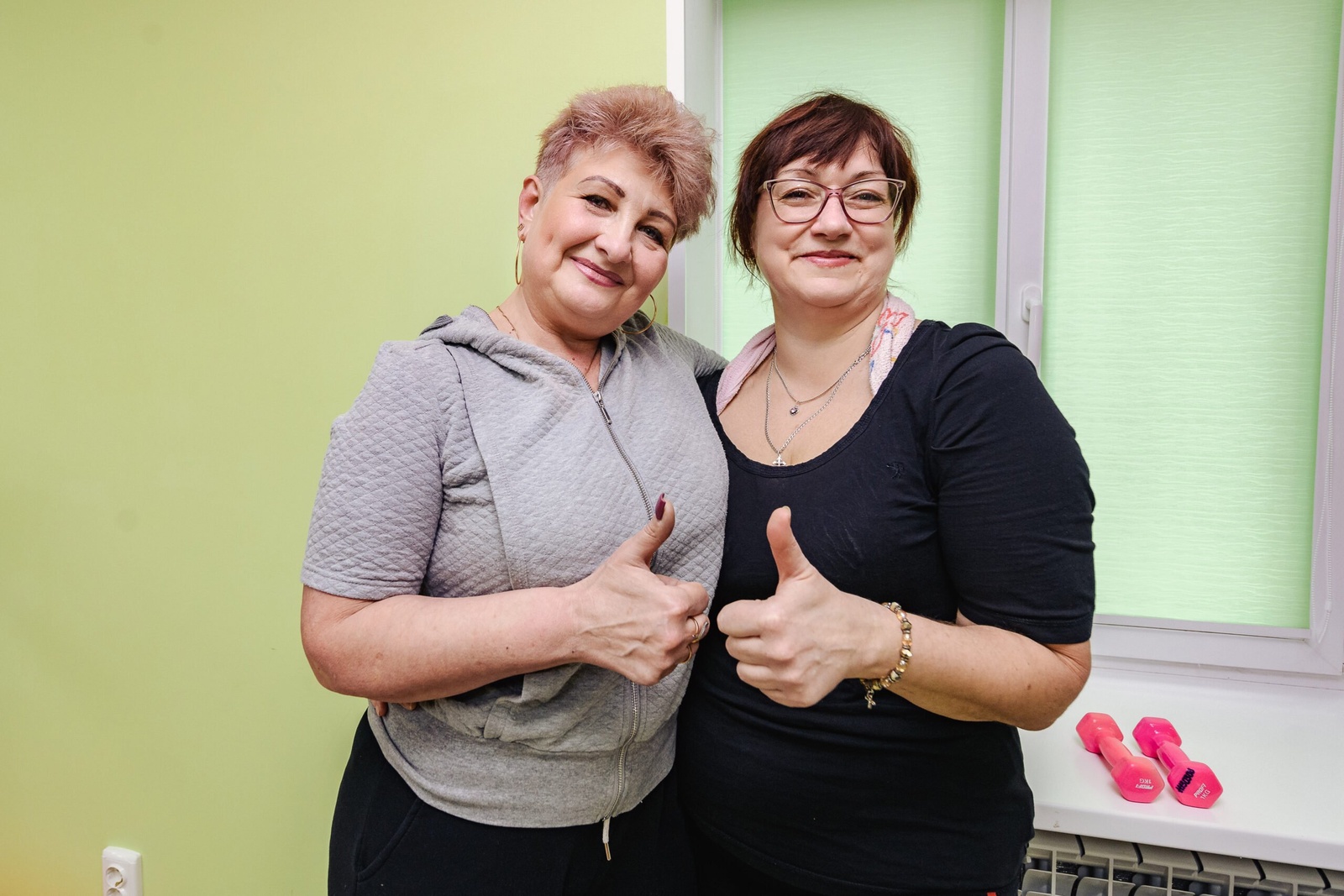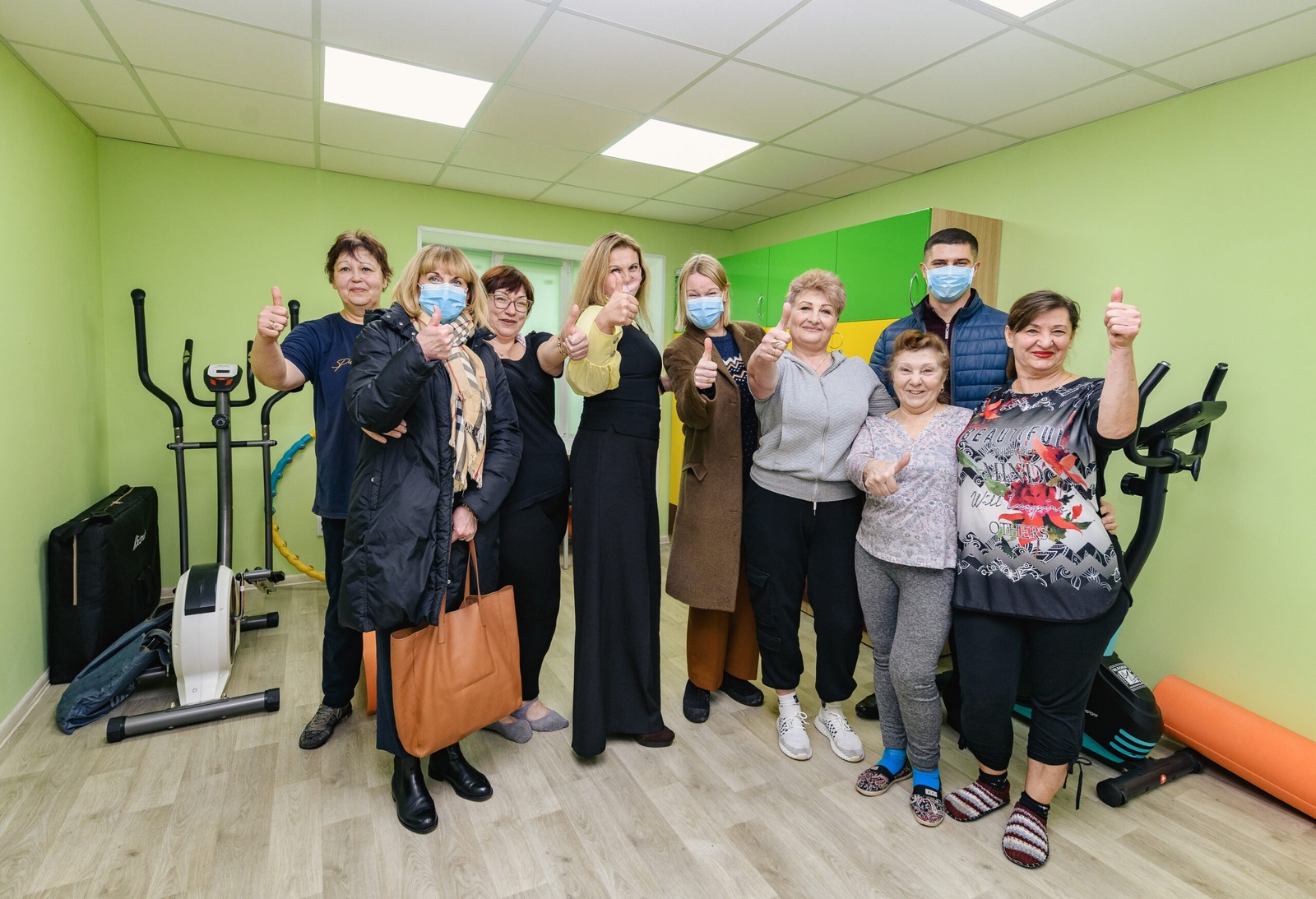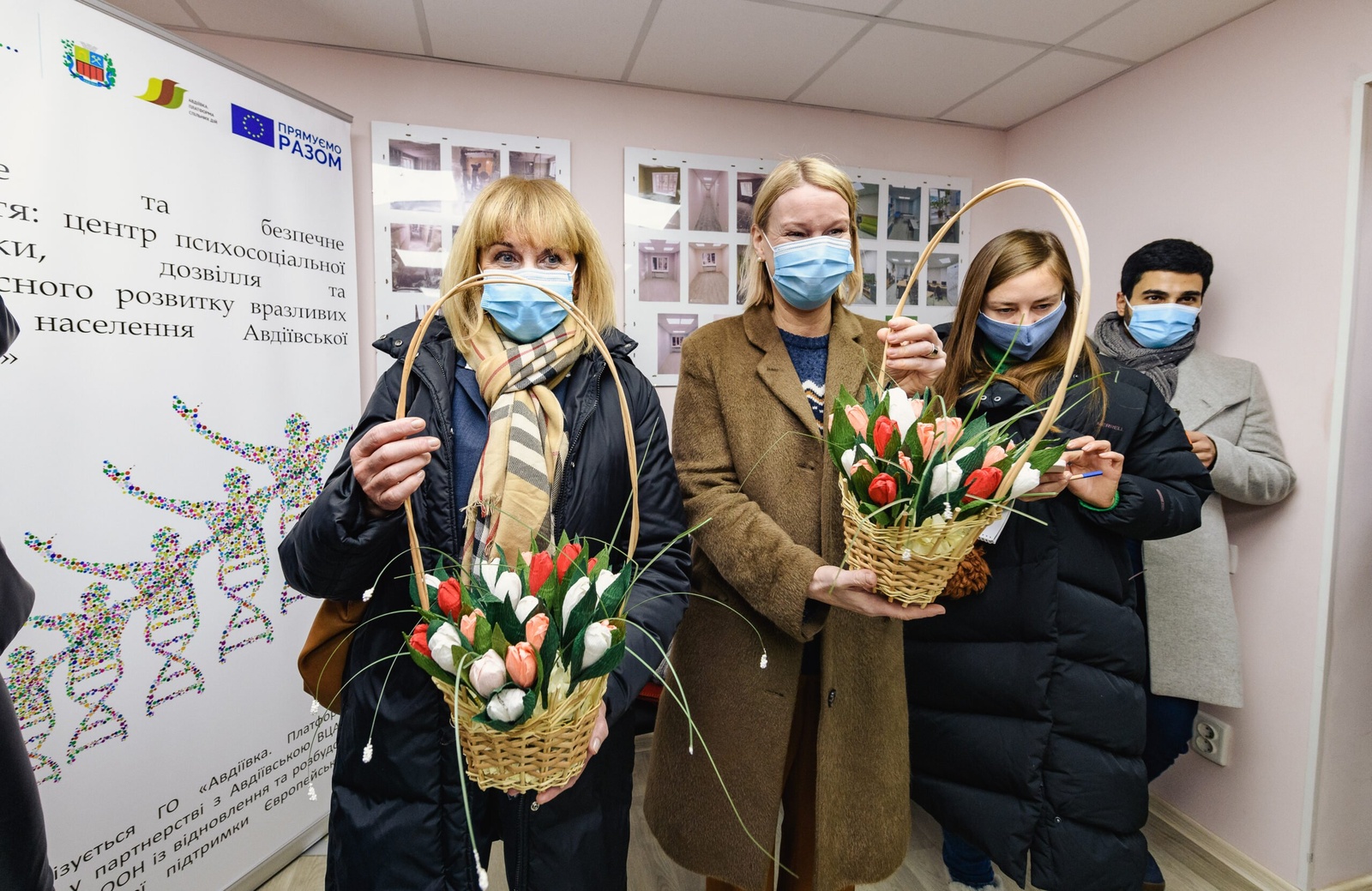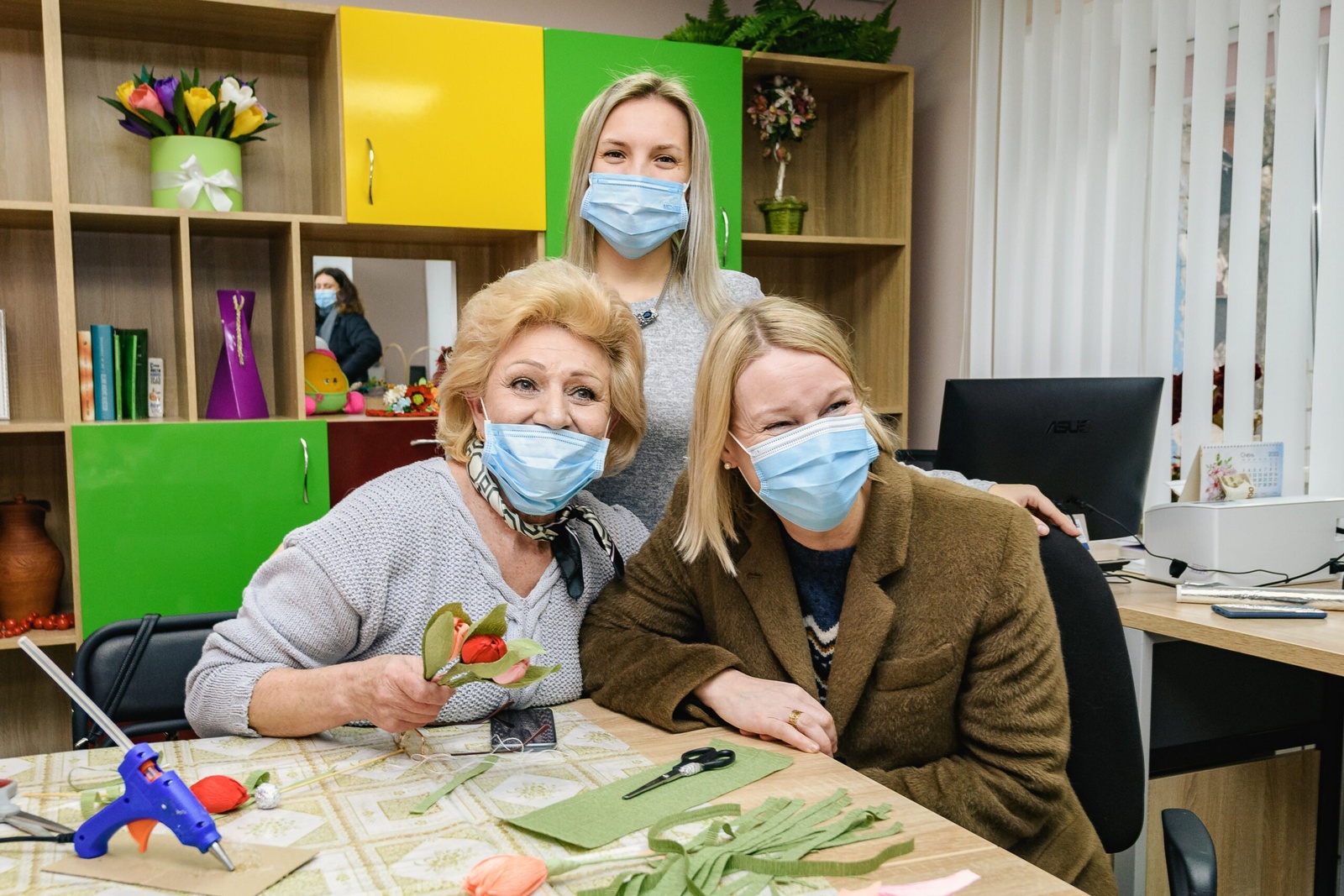Joint UN mission visits humanitarian-development nexus projects in eastern Ukraine
Joint UN mission visits humanitarian-development nexus projects in eastern Ukraine

Osnat Lubrani, United Nations Resident Coordinator and Humanitarian Coordinator in Ukraine, joined Dafina Gercheva, UNDP Resident Representative to Ukraine, and Karolina Lindholm Billing, UNHCR Representative in Ukraine on a visit to eastern Ukraine 9-11 February 2022.
This joint mission focused on humanitarian-development nexus projects, jointly implemented by UNDP and UNHCR. The nexus approach aims to address critical humanitarian and protection needs in a way which is sustainable and simultaneously strengthens local systems and accountabilities, by fostering links and synergies between humanitarian and development actions, in close collaboration with local authorities and local communities. The visited sites constitute strong examples of how this approach can provide sustainable solutions for internally displaced and conflict-affected persons.

The projects were designed in close consultation with the local population, in partnership with the private sector, and local and regional authorities. Budget allocations have been secured from authorities to ensure that the interventions remain sustainable and anchor local ownership.
The projects were made possible by the generous contributions of the European Union. Other important partners include Canada, Denmark, Estonia, Japan, the Netherlands, Norway, Sweden, Switzerland and the United States.
In Popasna, Luhansk Oblast, on 9 February, Lubrani, Gercheva and Lindholm Billing attended the opening ceremony of the renovated ‘Leleka’ rehabilitation center for children with disabilities.
At the opening ceremony, Lubrani said that the center would ease access to persons with disabilities to much needed facilities and services as well as build their skills and their confidence.
“Meeting the children and the dedicated staff and volunteers, it is rewarding to realize how this center is contributing to full inclusion of people with disabilities in society.” Lubrani said.
Also in Popasna, the mission visited the University of the Third Age, which encourages life-long learning, and boarded Mobile Social Services centers. These roaming vehicles provide medical and sanitary services, but also legal advice, socio-psychological assistance and gardening help, to name a few.
On 10 February, Lubrani, Gercheva and Lindholm Billing visited a Multifunctional Creative Space for Youth Development, in Toretsk, Donetsk Oblast. The creative space allows children, primarily from socioeconomically vulnerable families, to develop their creative talents in a safe space.
Moving on to Niu York in Donetsk Oblast, the mission visited the town’s Cultural Hub – a platform for community initiatives, dialogue, and concerts. Local youth proudly explained that after 70 years of being called Novhorodske, the town regained its original name in 2021. The center also serves as space for an impressive exhibition of photo portraits celebrating women leaders and activists in the community.
The next day, the mission continued to the town of Avdiivka in Donetsk Oblast. There, it visited the Territorial Center for Social Services, which offers psychosocial support, leisure and personal development for older persons who have been greatly impacted by the conflict, including through family separation and trauma.
Also in Avdiivka, children attending the “Renaissance – Music School of the Future” held a moving concert for the visitors. Currently 22 teachers teach music instruments and theory, including Ukrainian music history, to some 180 students.
Afterwards, Lubrani and Lindholm Billing attended the opening of a new traumatology unit at the central hospital of Avdiivka. This improvement will expand access to health care for many Ukrainians on both sides of the contact line.
Lindholm Billing, said that there are still critical humanitarian needs due to the protracted conflict, but highlighted the importance of – wherever possible – addressing these in a way which simultaneously builds the capacity of local communities and authorities to protect the rights and dignity of the population in the future:
“UNHCR, as a humanitarian organization with a protection and solutions mandate, provides different types of support and assistance to help individuals or communities in a particularly vulnerable situation address an immediate need, such as psychosocial support, and strives to work in partnership with development organizations, such as UNDP, to link our programs to their projects aimed at developing local systems and structures. In this way, immediate needs are met, while local systems are developed to address the same or similar needs of other people in the future. The people whose needs our programs are seeking to help, and the local authorities are key actors and partners in this community-based ‘Humanitarian-Development Nexus’ approach.”
At the same time, Gercheva attended the opening of the local court, which had stopped operating after the beginning of the conflict in 2014. New computers and videoconferencing equipment will enable the court to resume hearings right away, thus facilitating access to justice for all Ukrainians.
Gercheva said that all people must have unhindered access to justice – especially those who live in the conflict-affected areas across eastern Ukraine.
“The armed conflict and ongoing pandemic have created additional challenges for justice and rule of law by limiting access to courts, and hindering the movement of people who try to cross the ‘contact line’ seeking protection,” she said. “Despite the many obstacles and formidable challenges, UNDP and its partners will continue to make every effort to enhance the capacity of Ukraine's judiciary.”
During the visit, the UN delegation also met with the heads of Donetsk and Luhansk oblast administrations, to discuss the ongoing partnership and to explore areas for strengthened future collaboration.
The visit also provided an opportunity for Lubrani, Gercheva and Lindholm Billing to host townhall meetings to engage with UN staff, field questions and express strong appreciation for the work of all UN personnel serving in Donetsk and Luhansk oblasts.
The joint mission was a testament to the UN’s continued engagement for all Ukrainians, with focus on those most vulnerable. It highlighted the potential for further operationalization of the humanitarian-development nexus approach and underscored the UN’s commitment to helping Ukraine achieve the sustainable development goals and ensuring that nobody is left behind.
Photo: Artem Hetman


